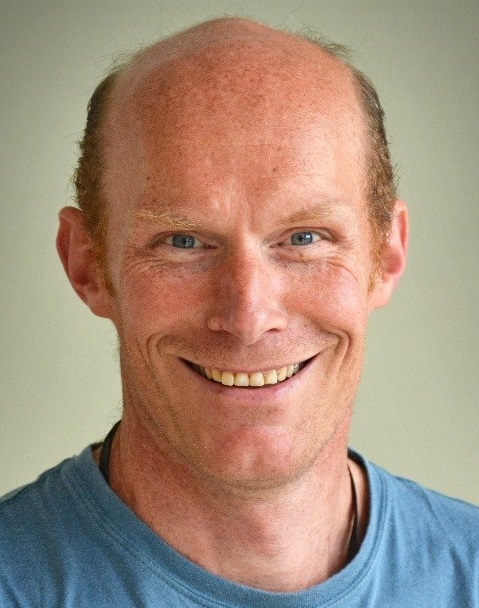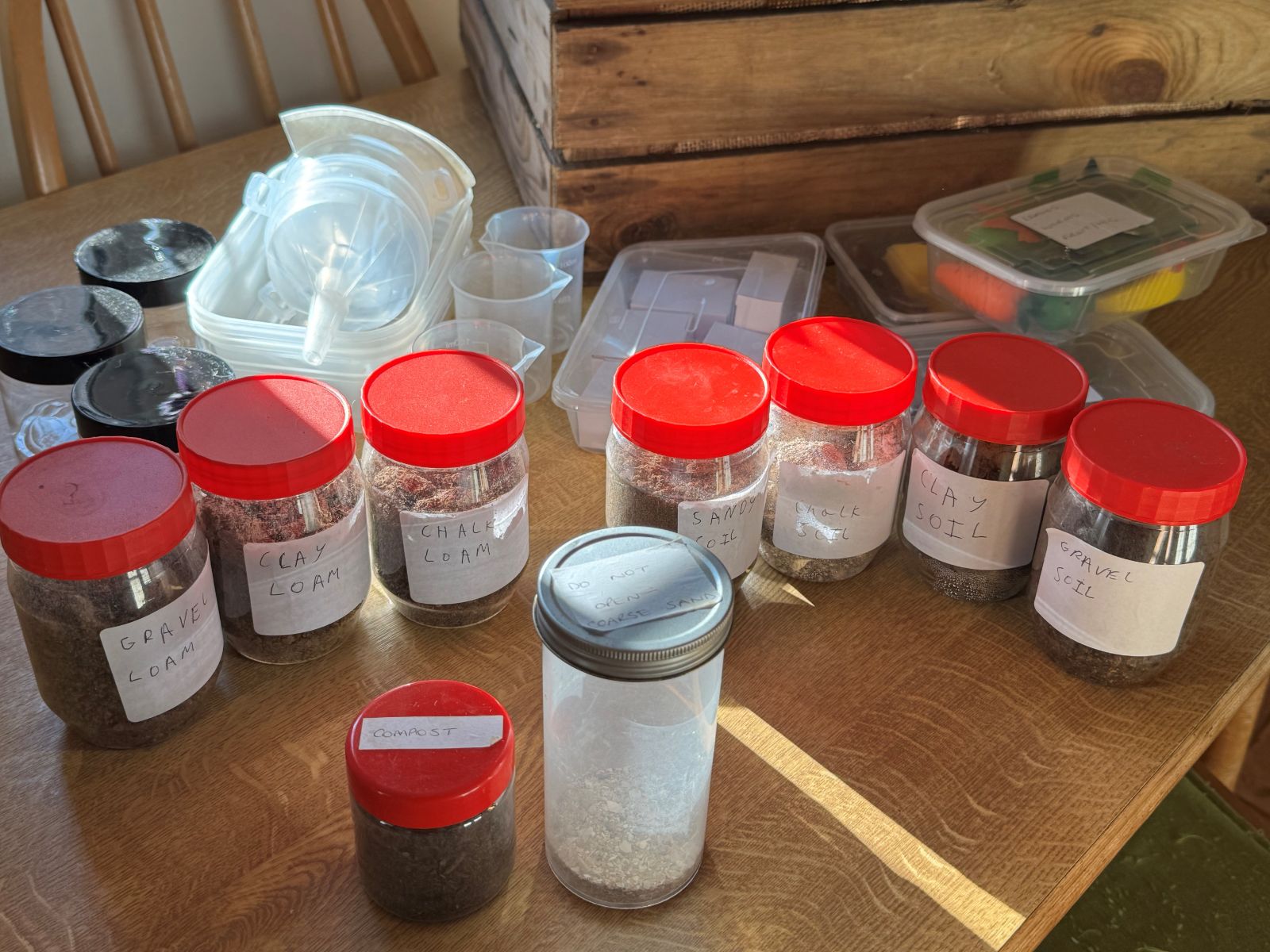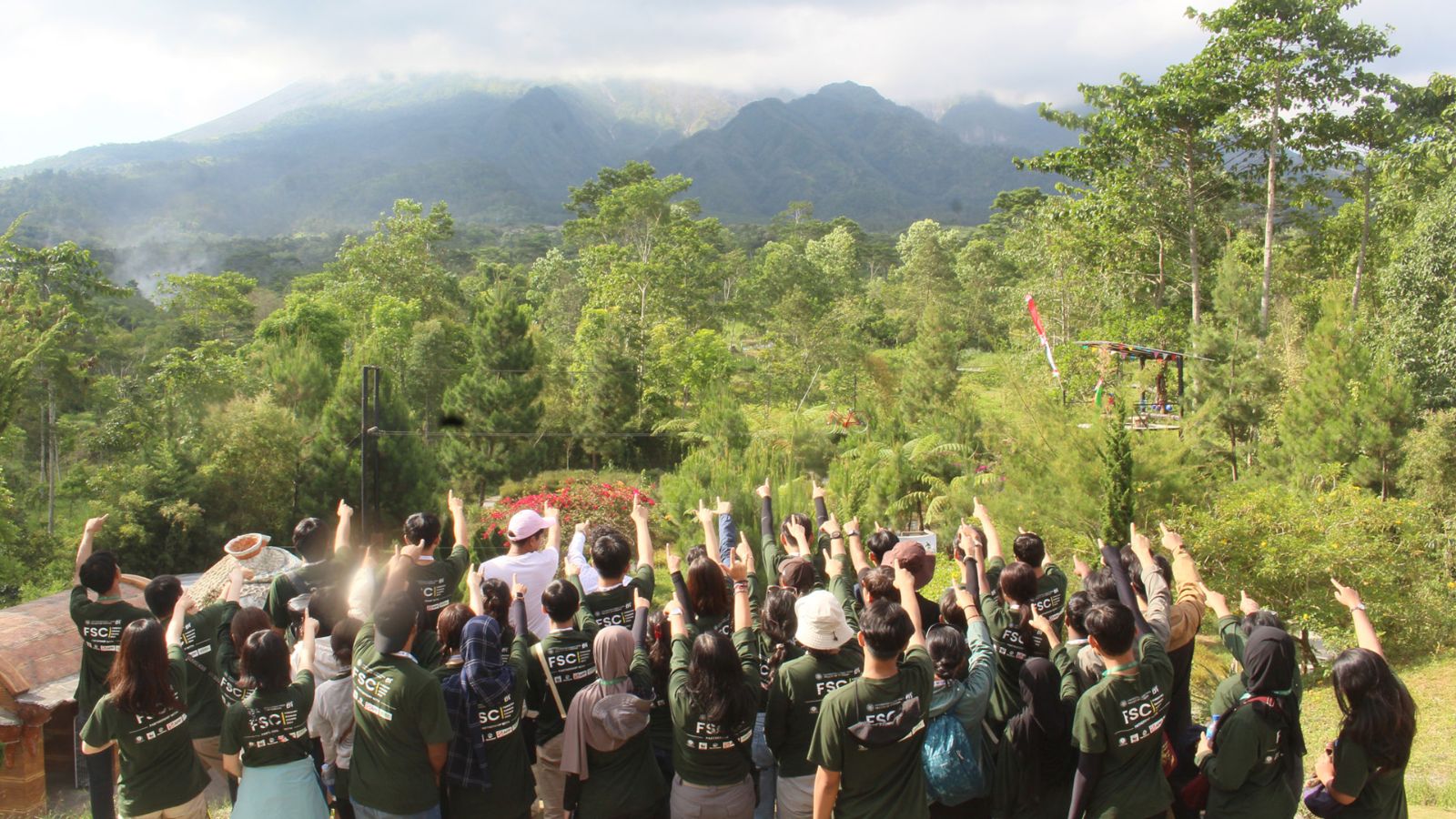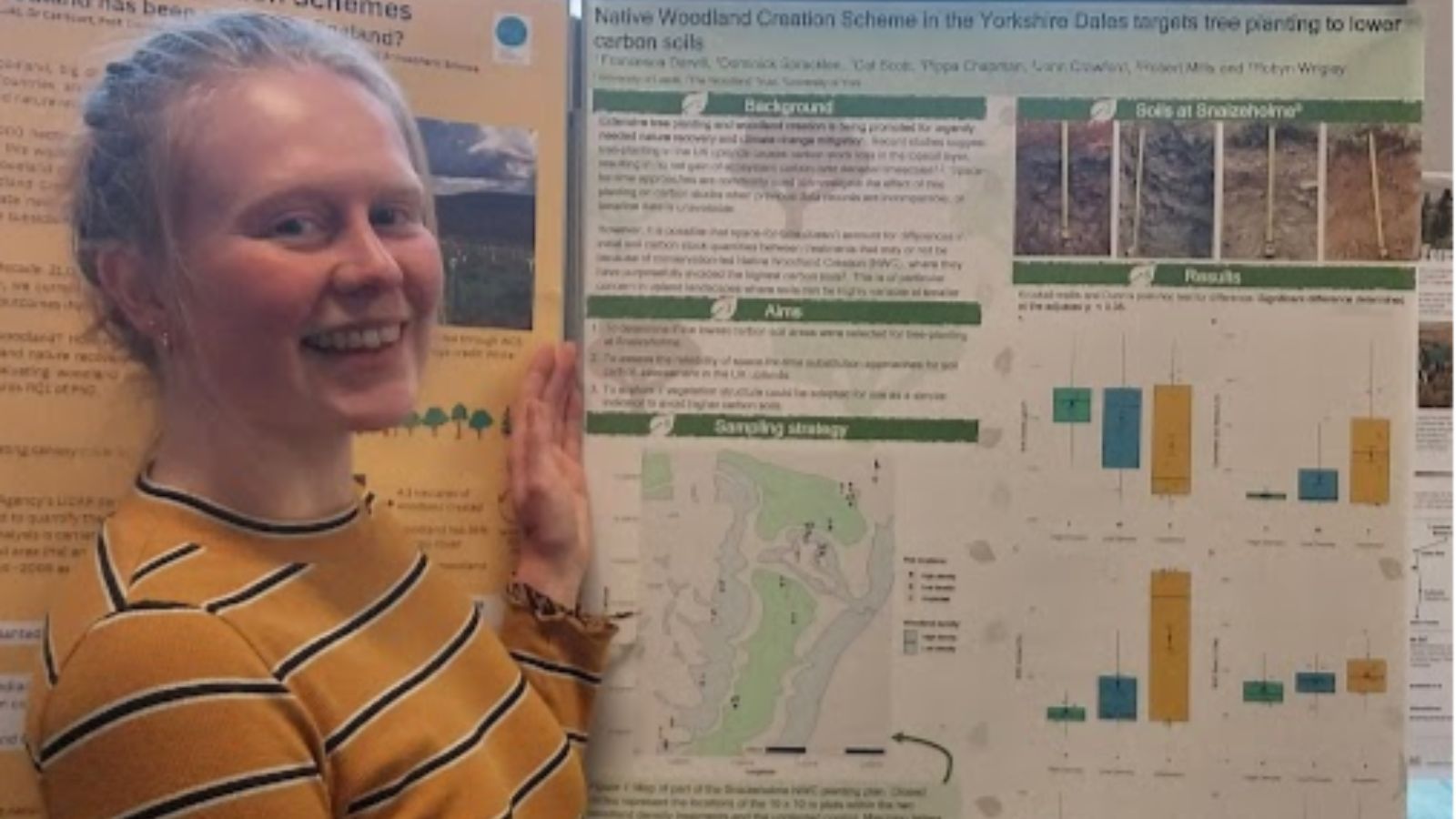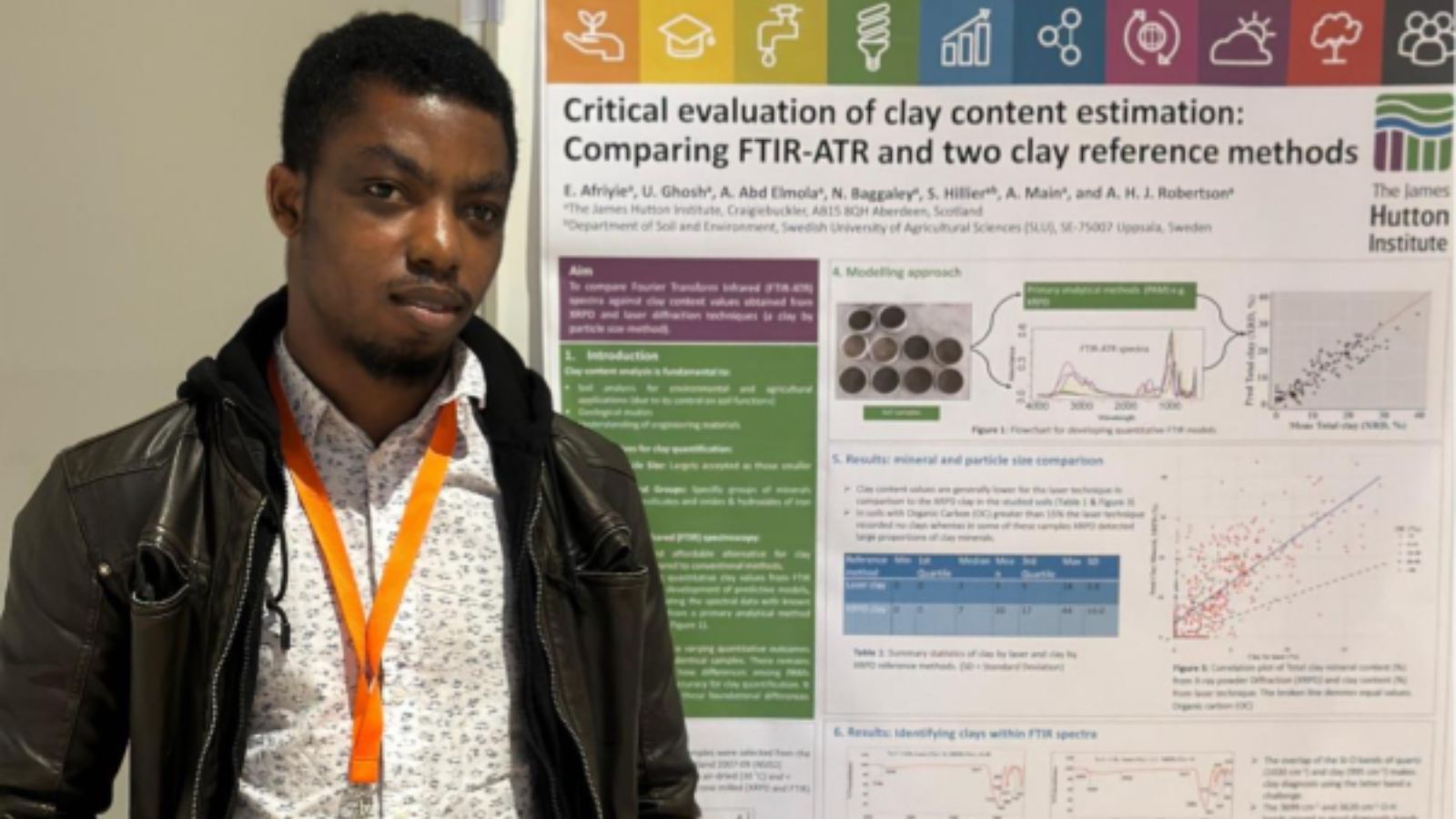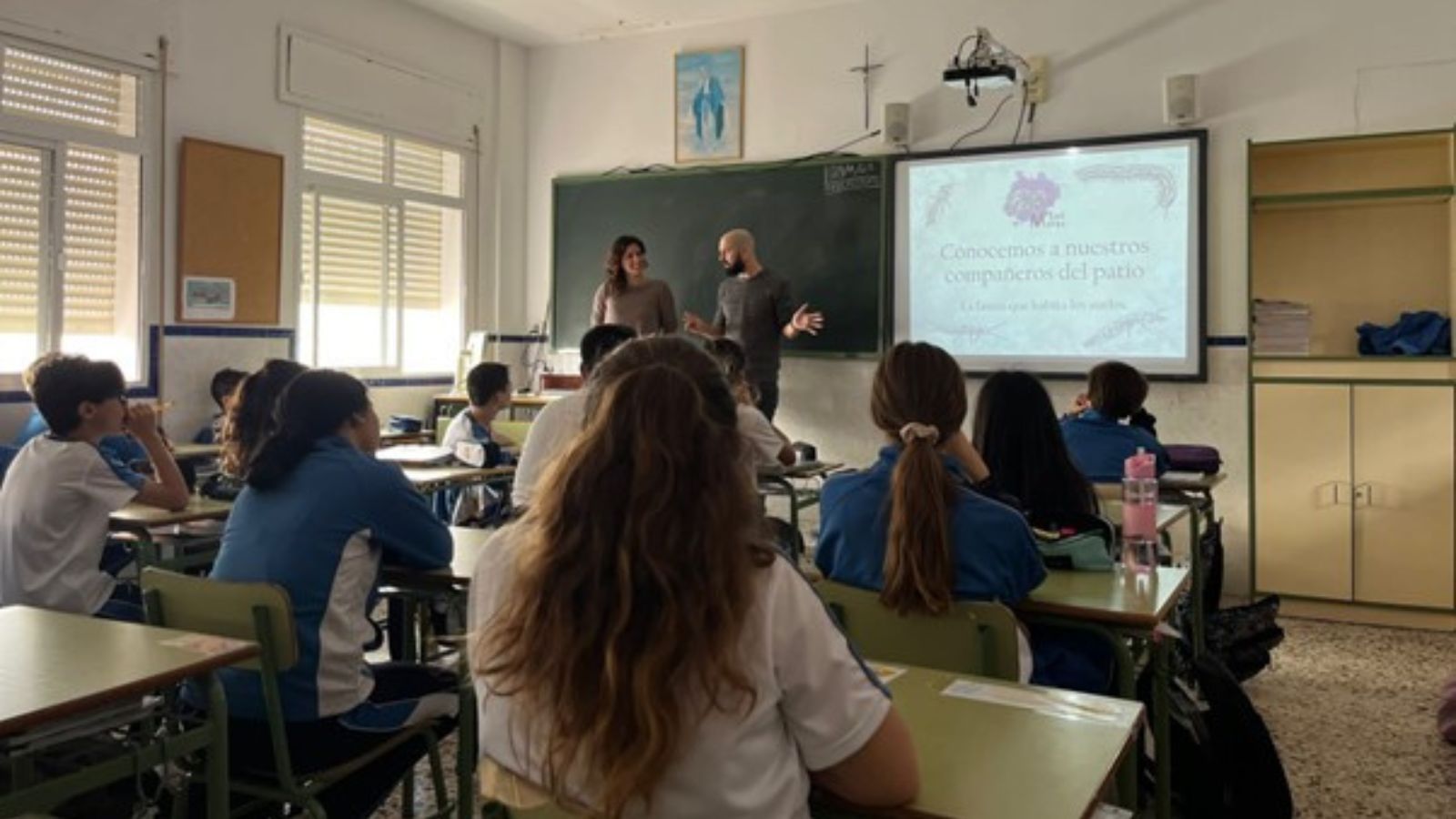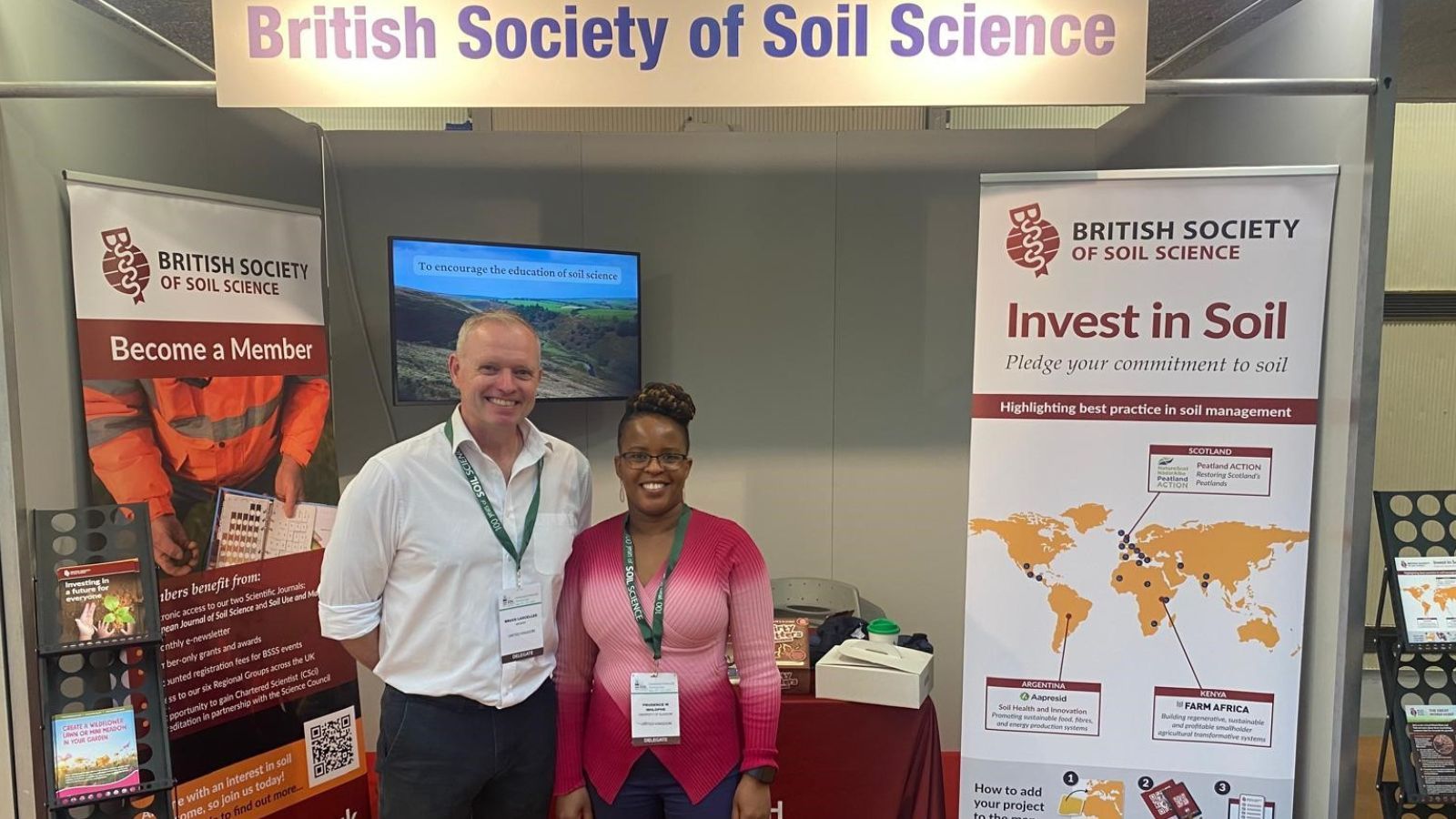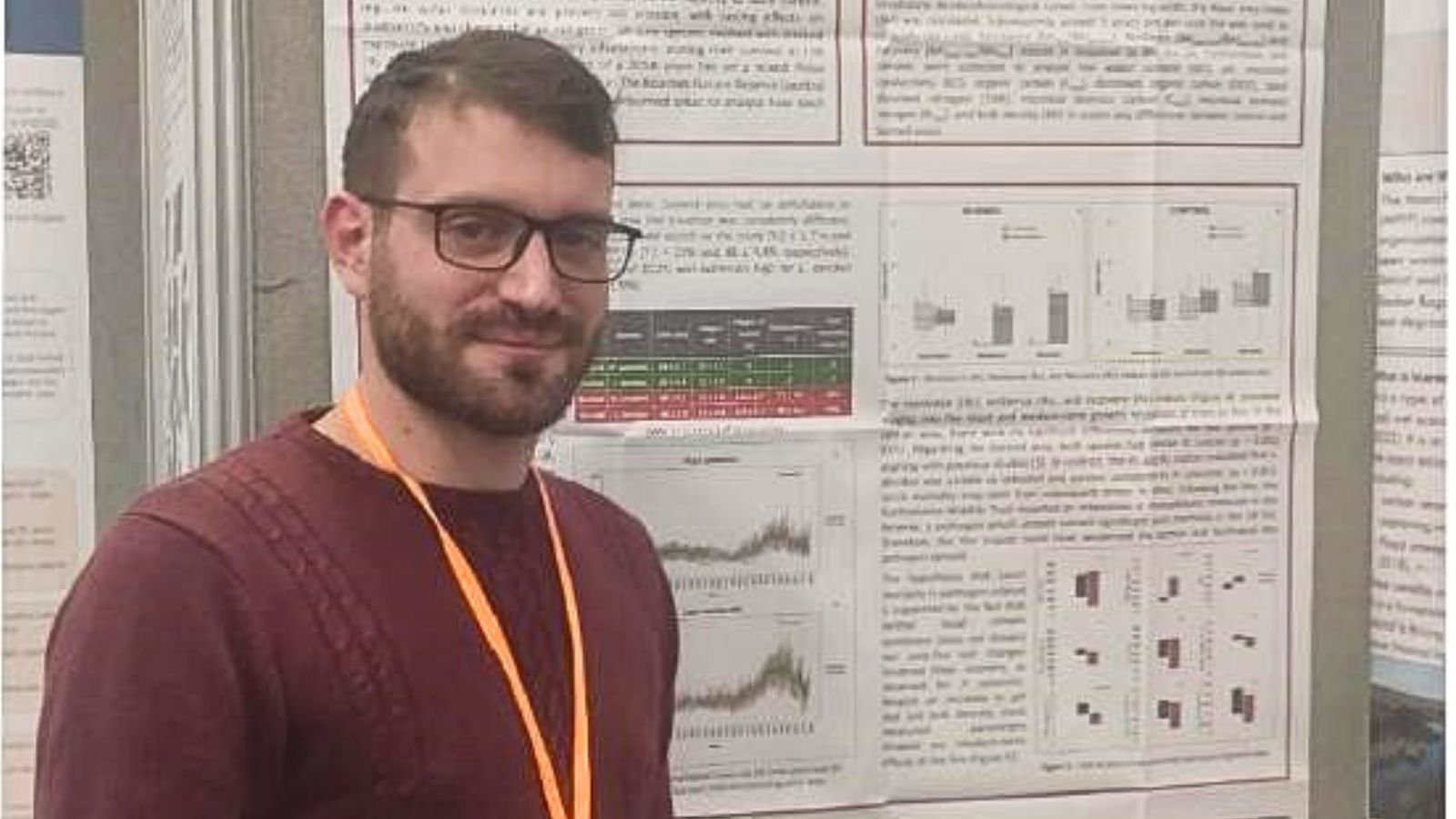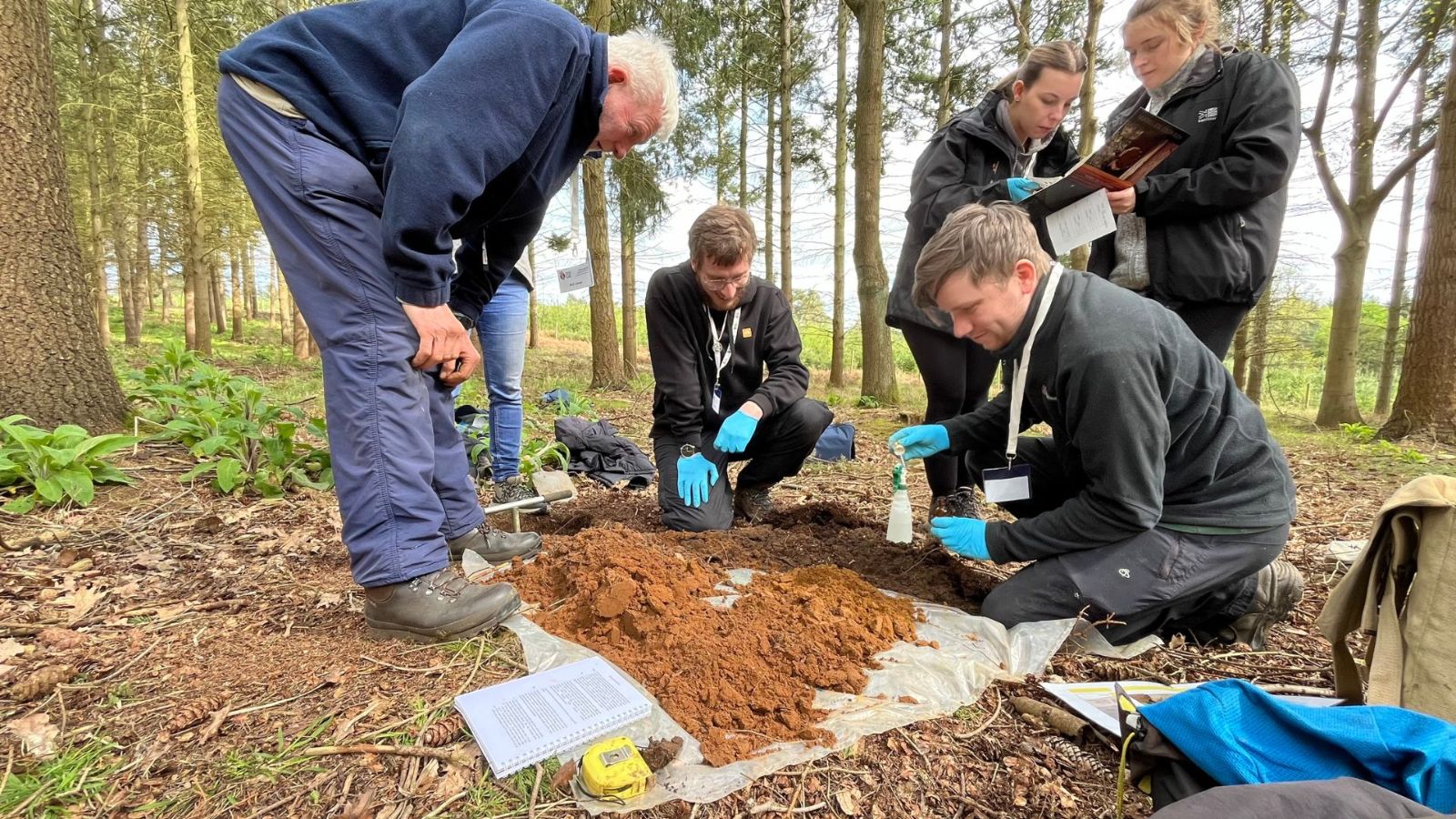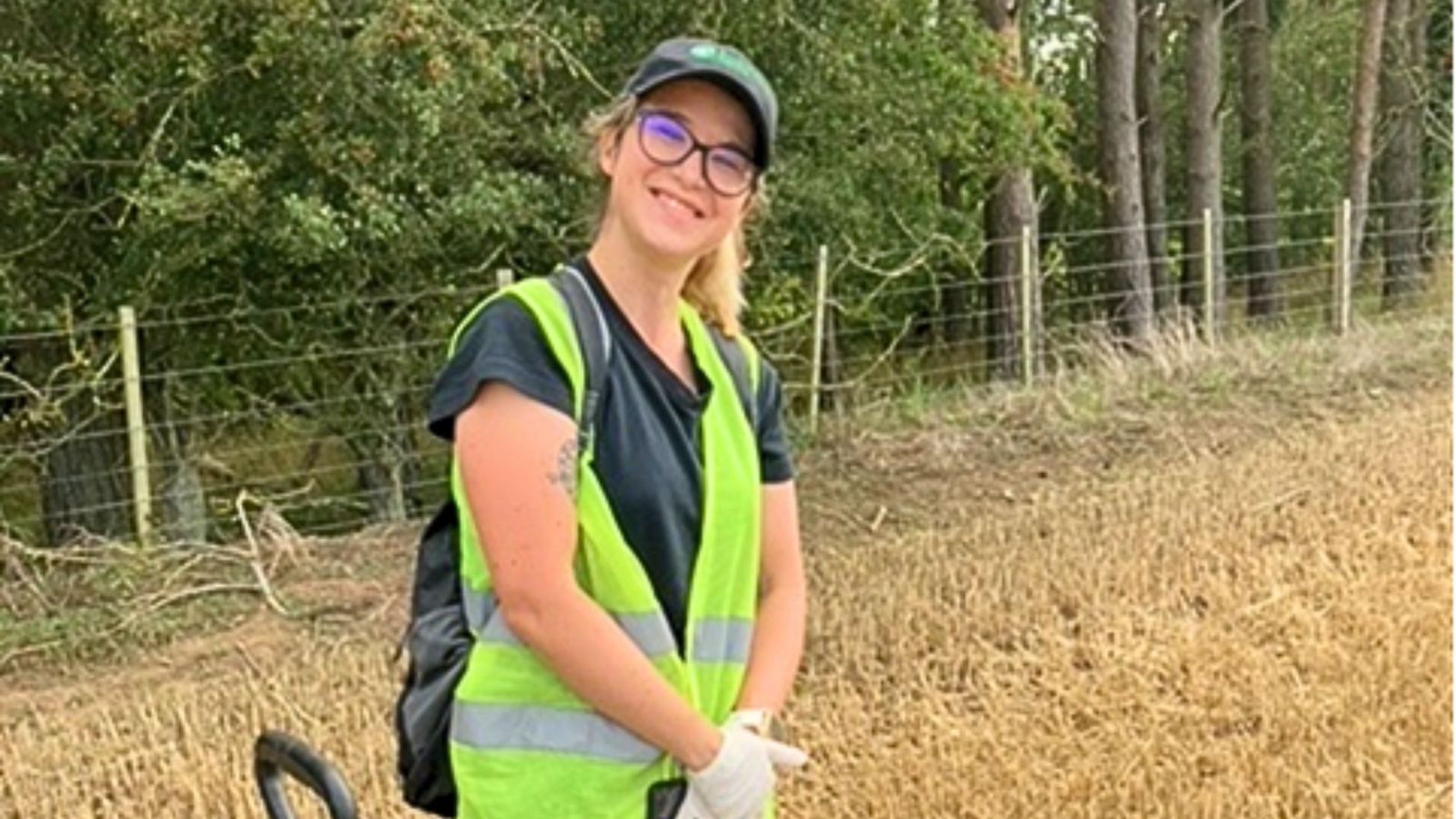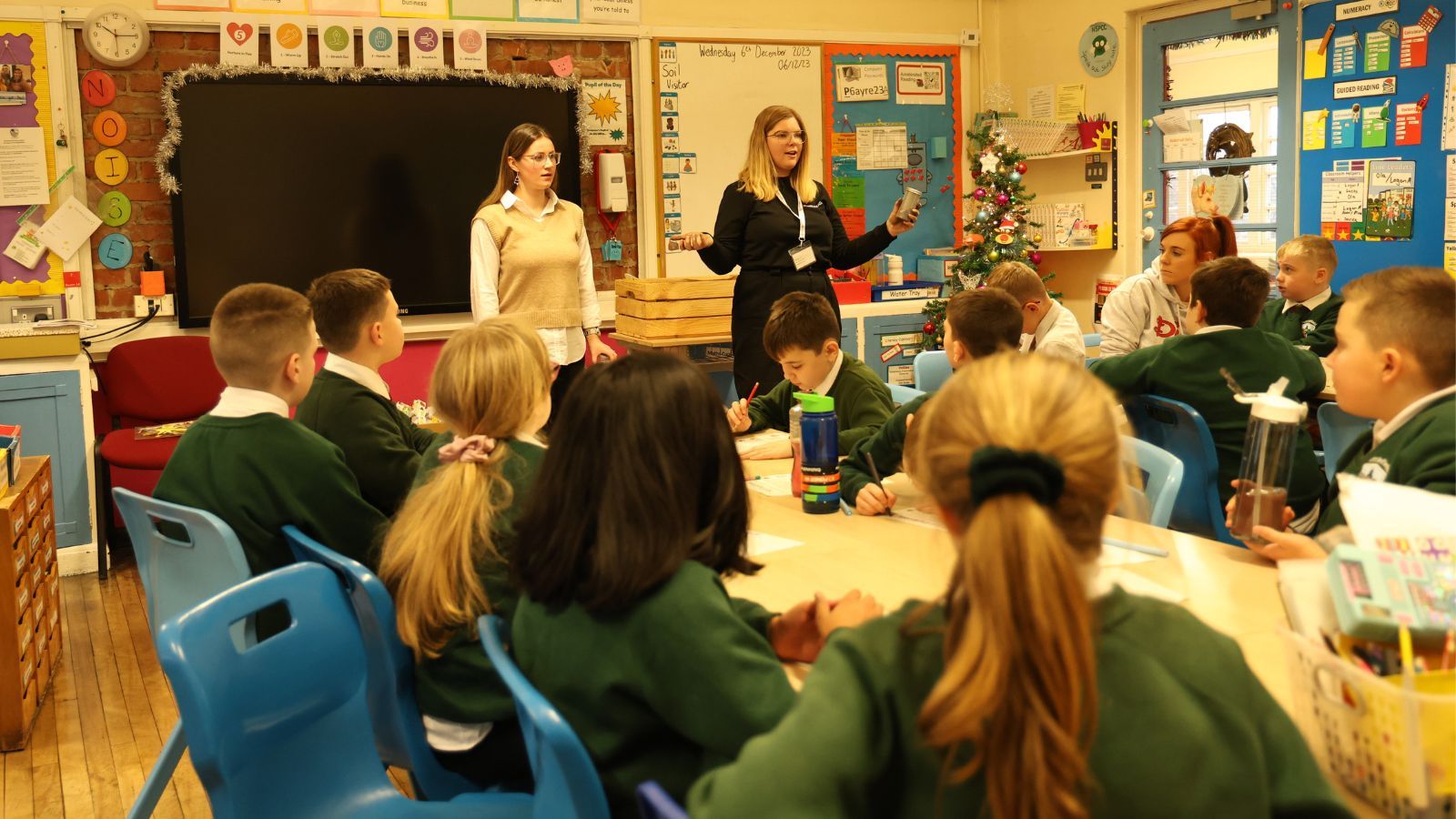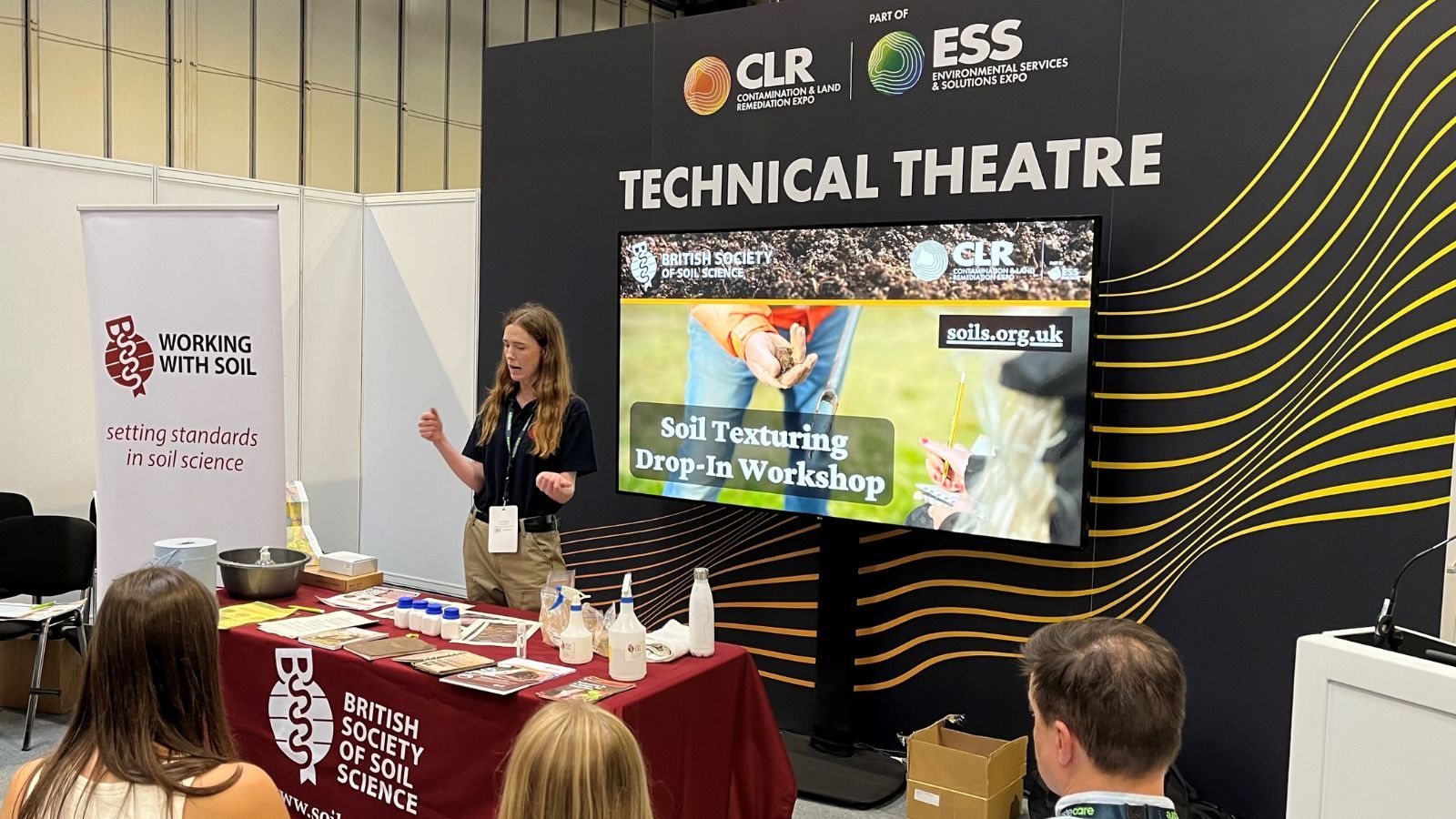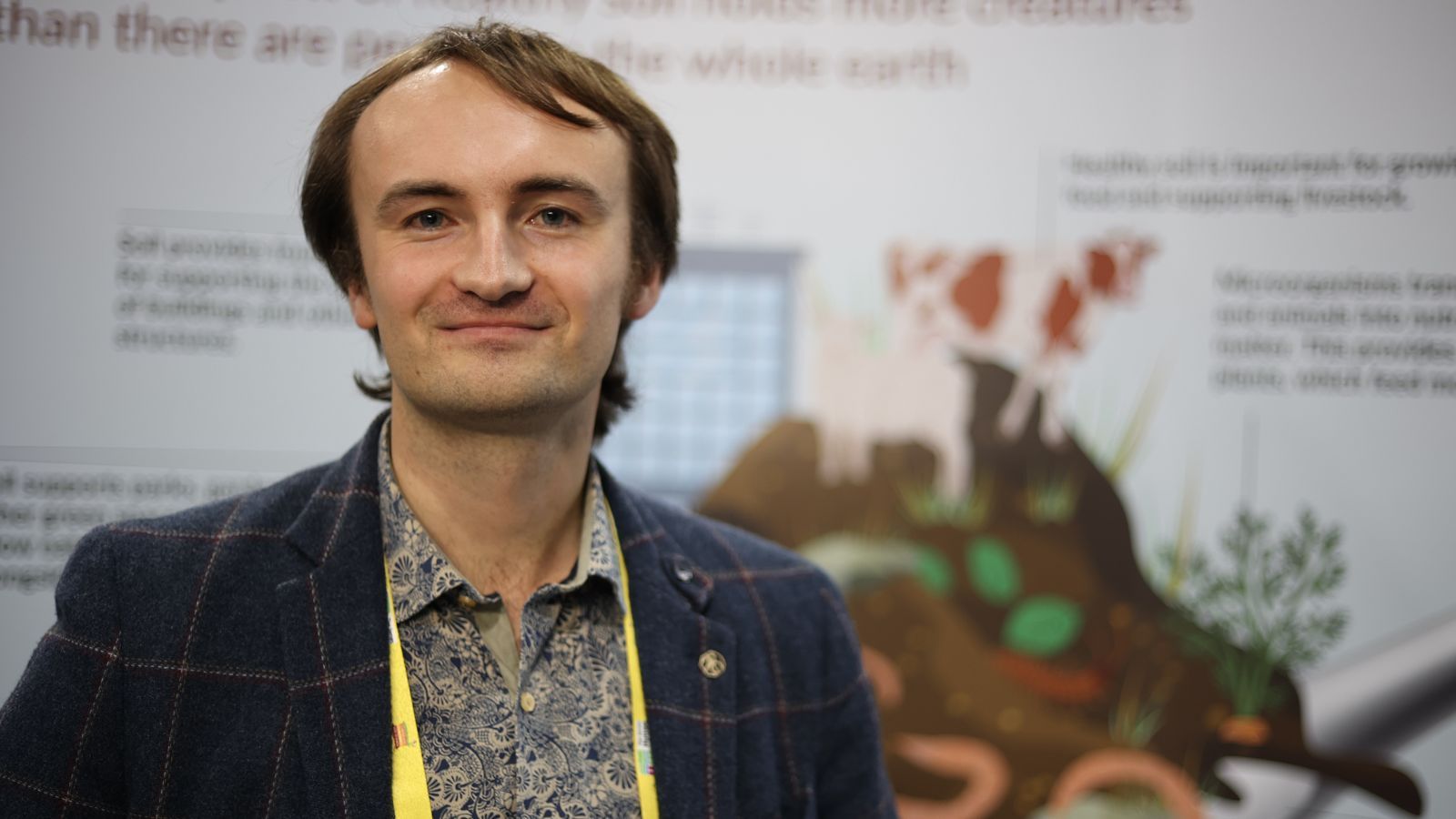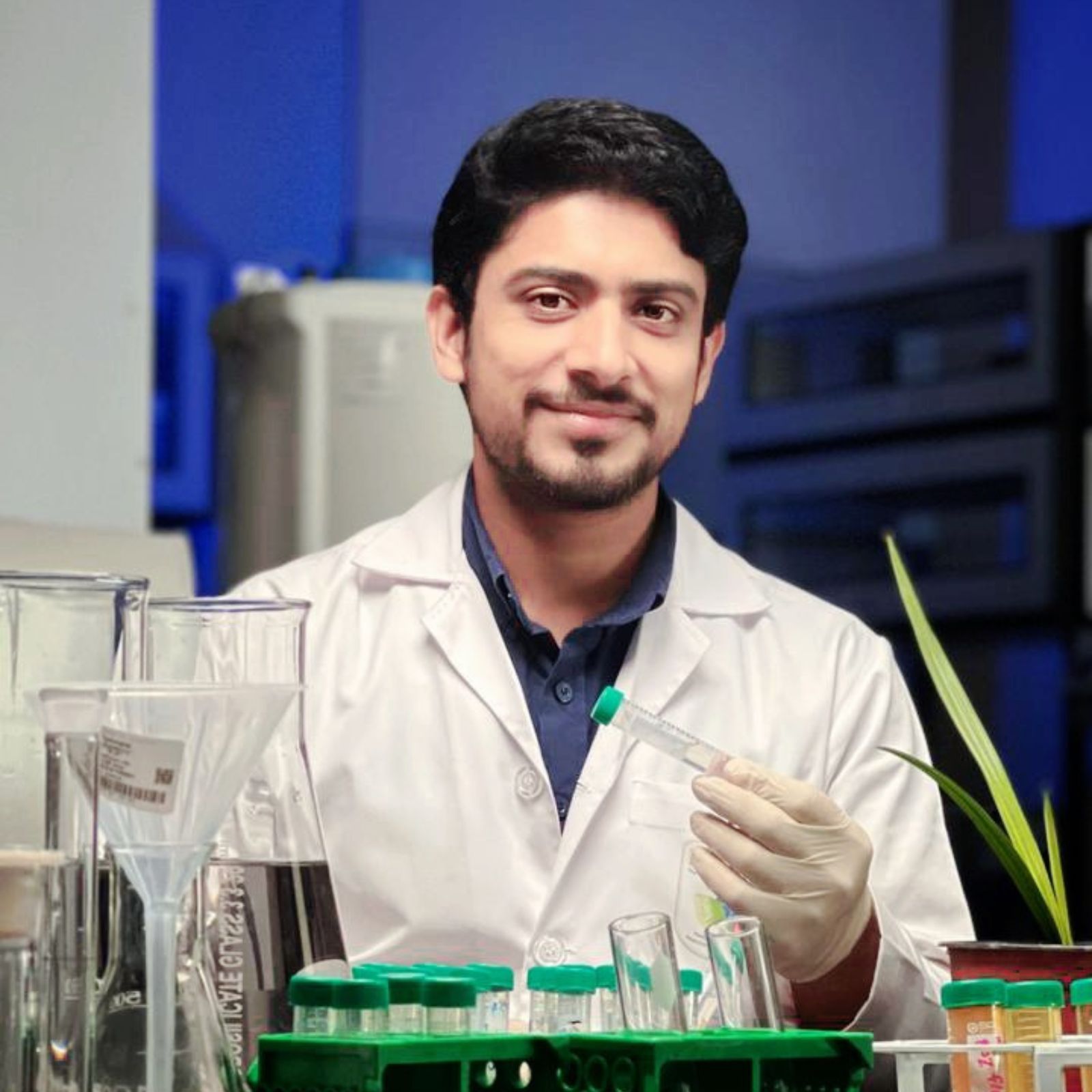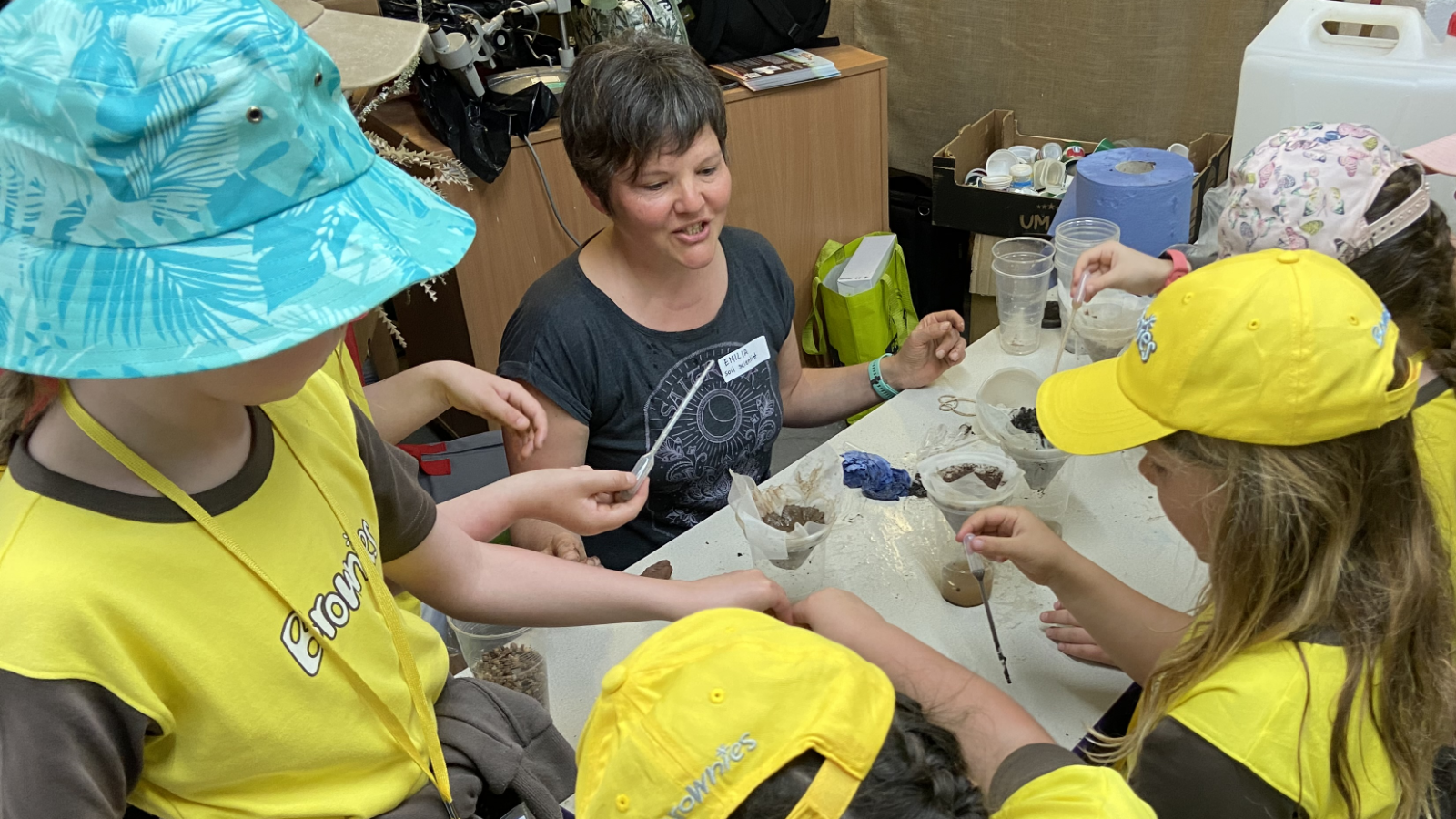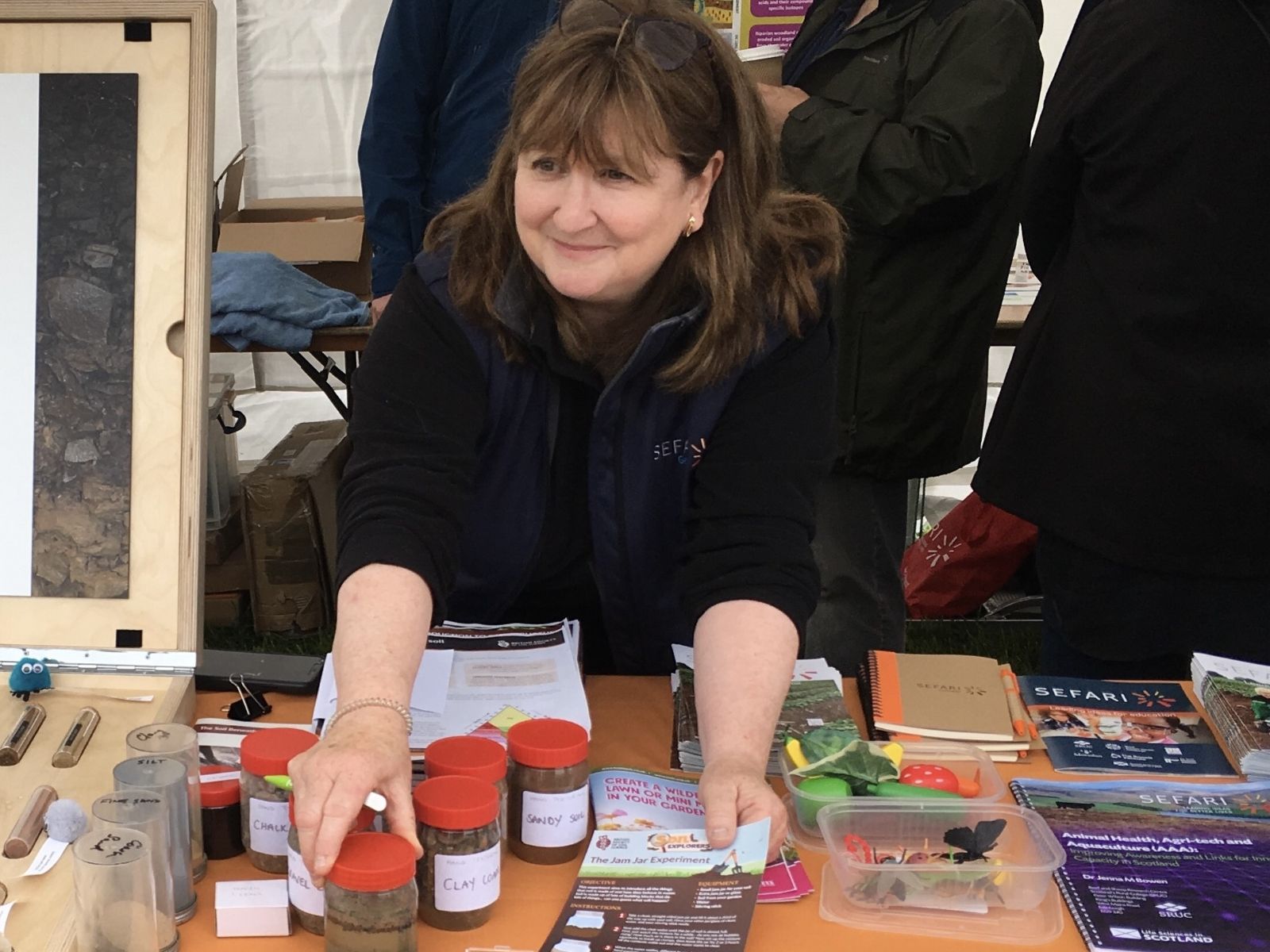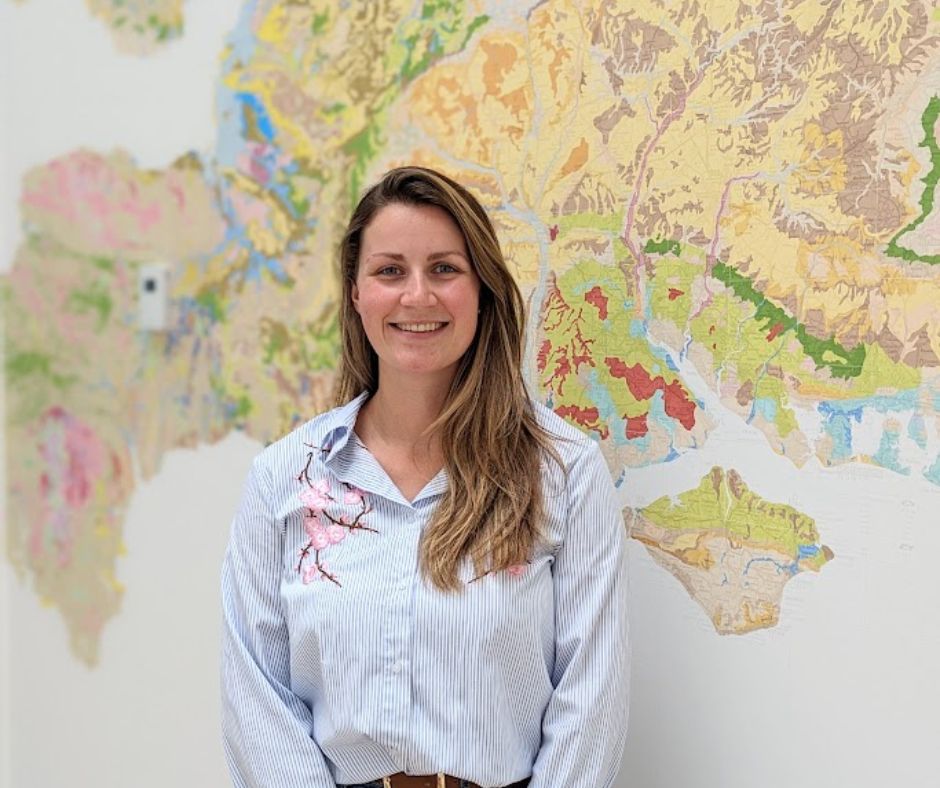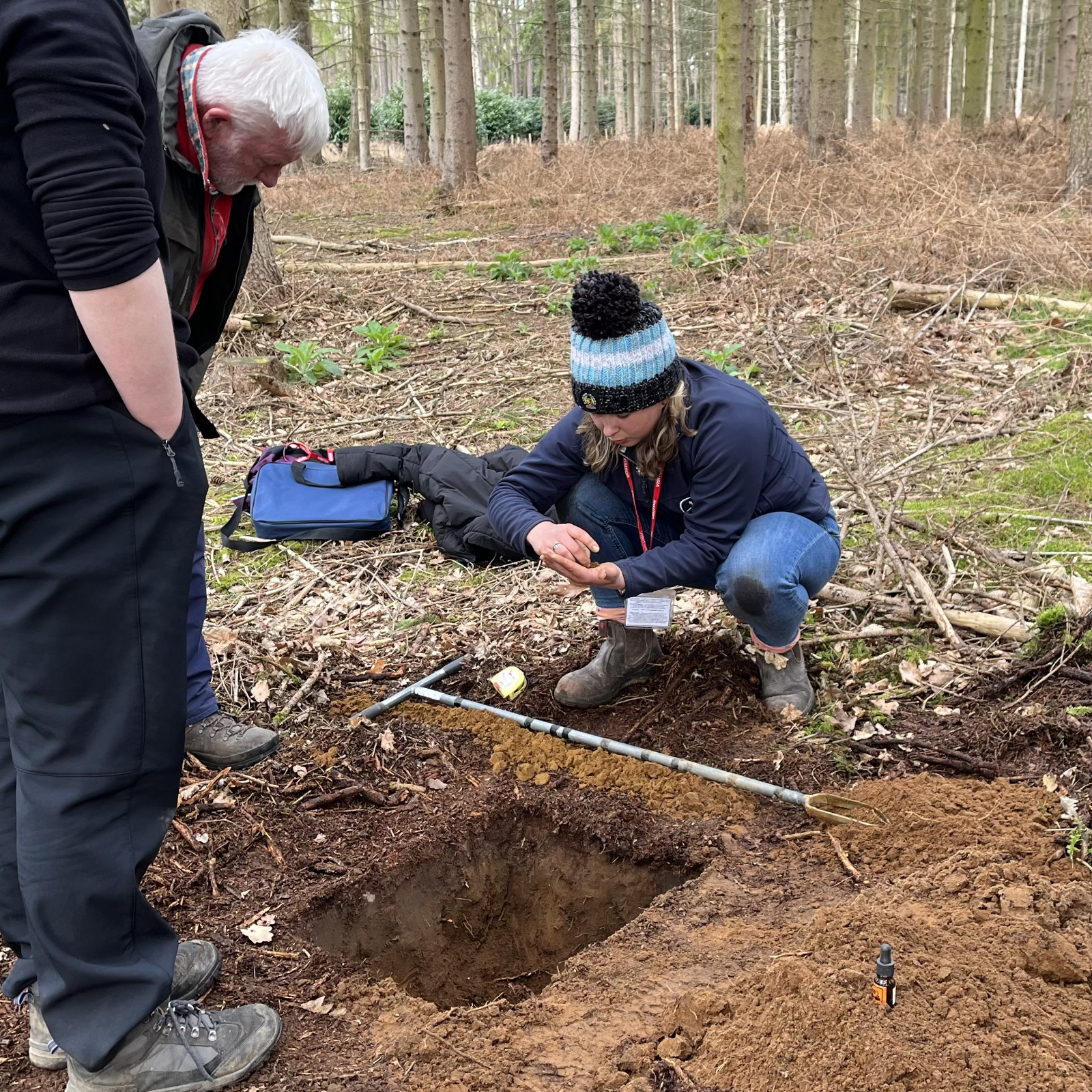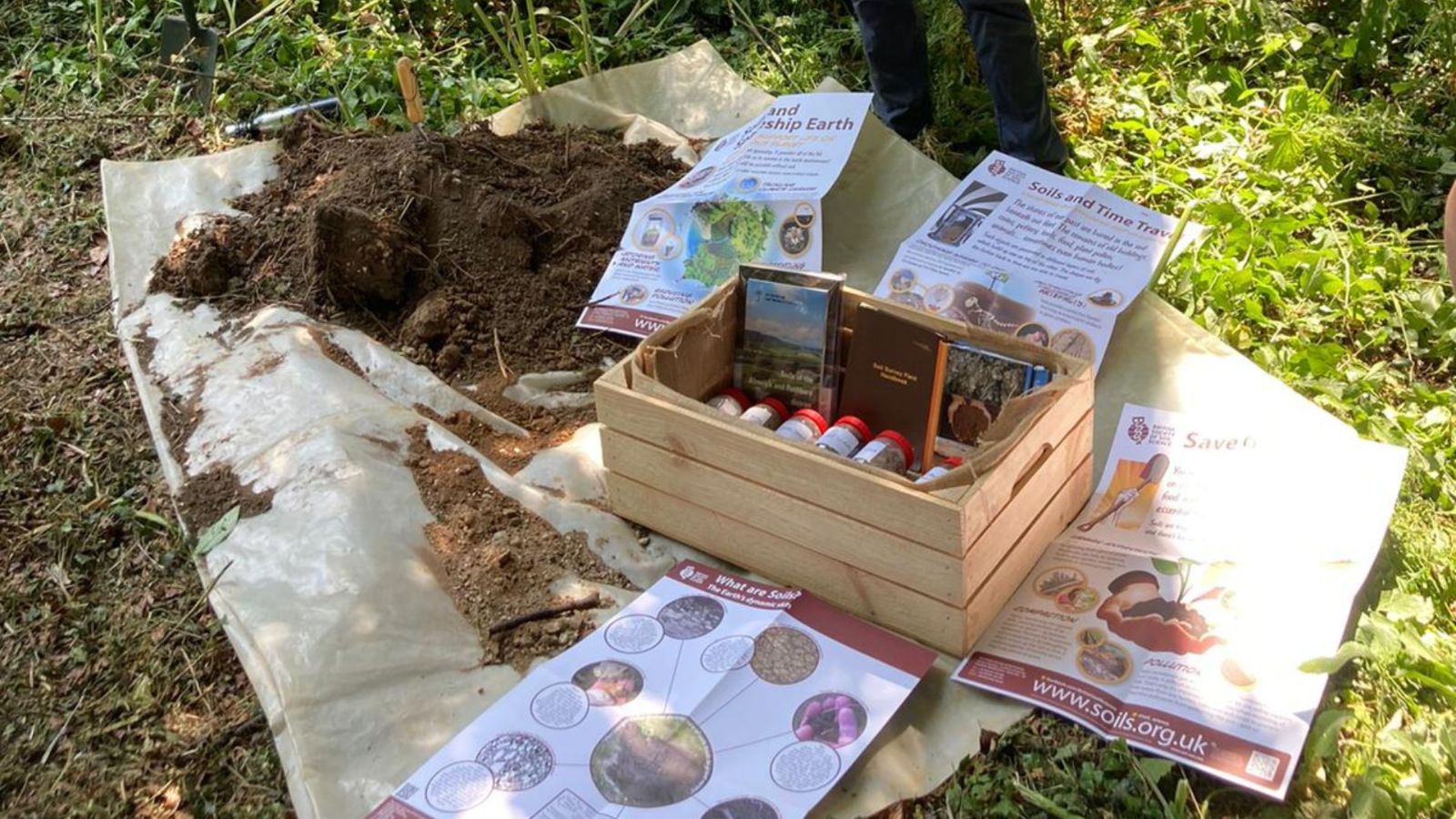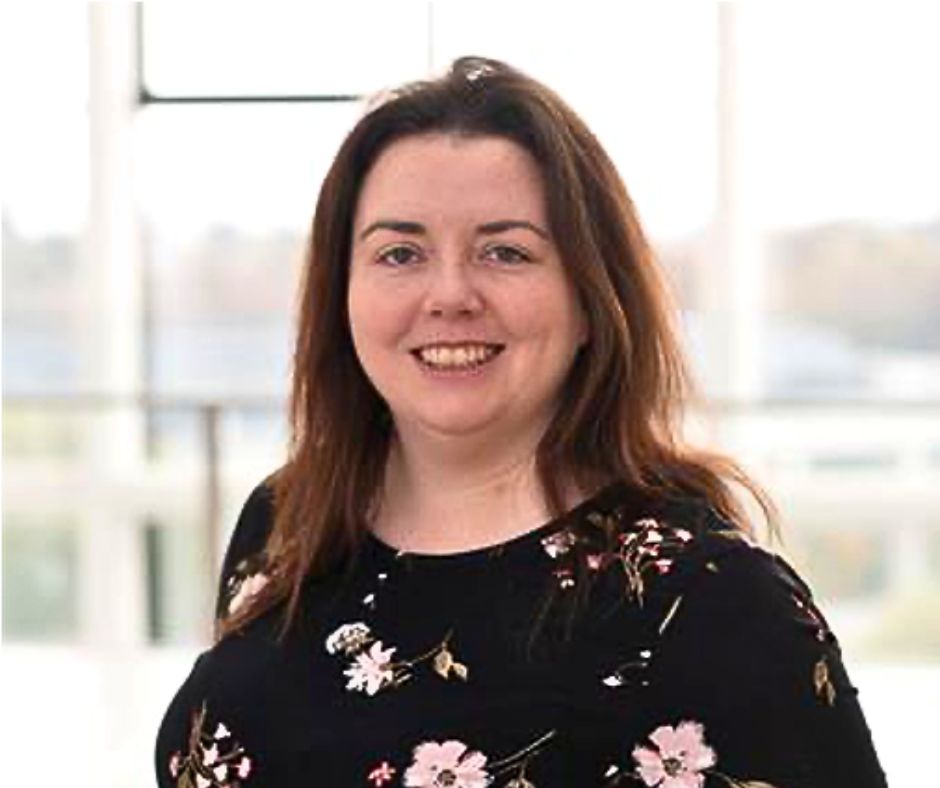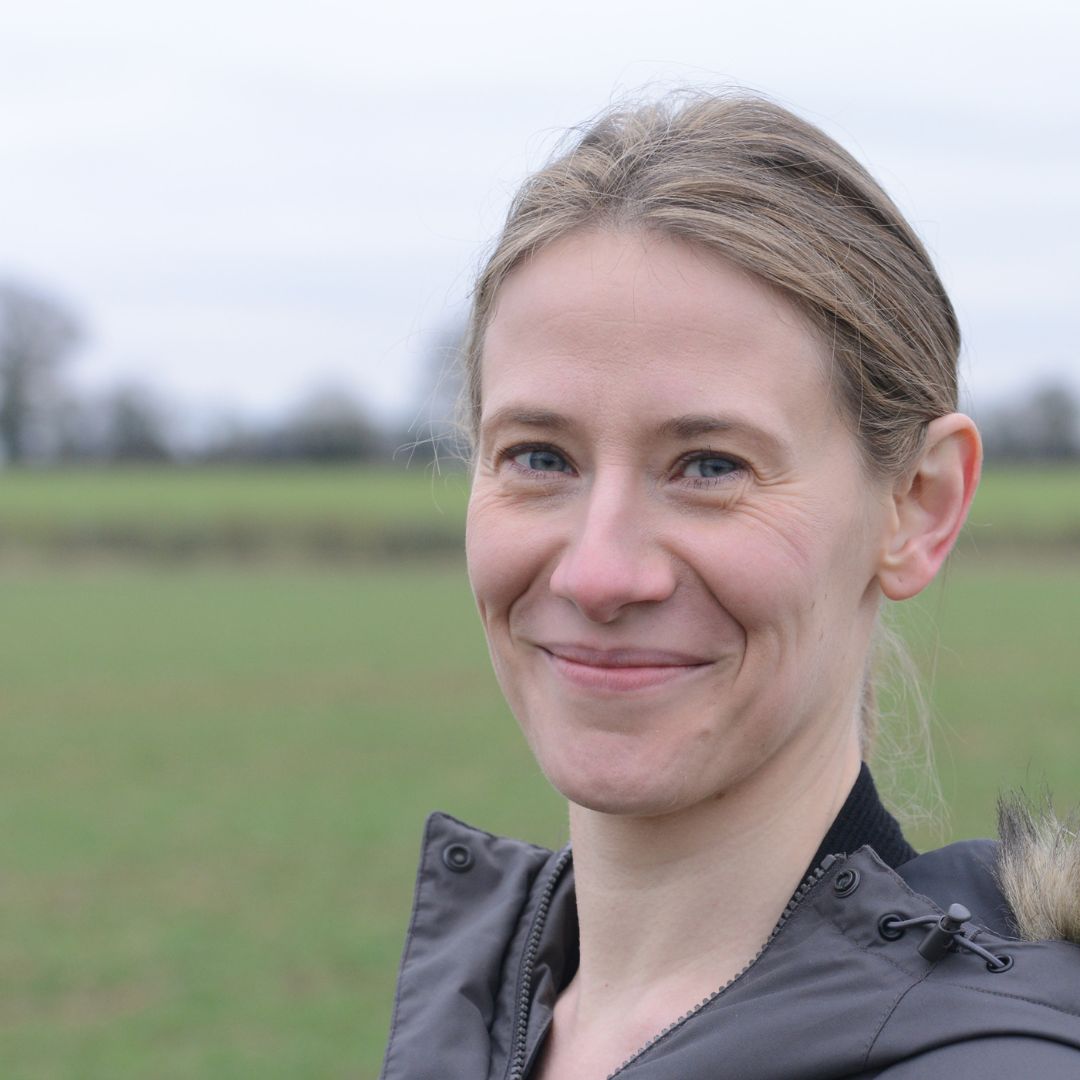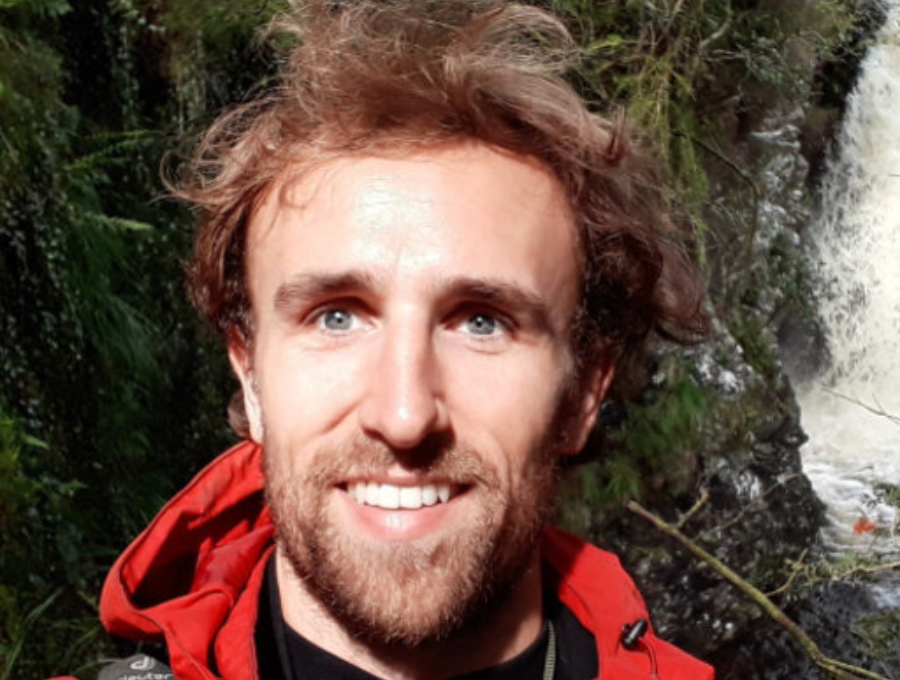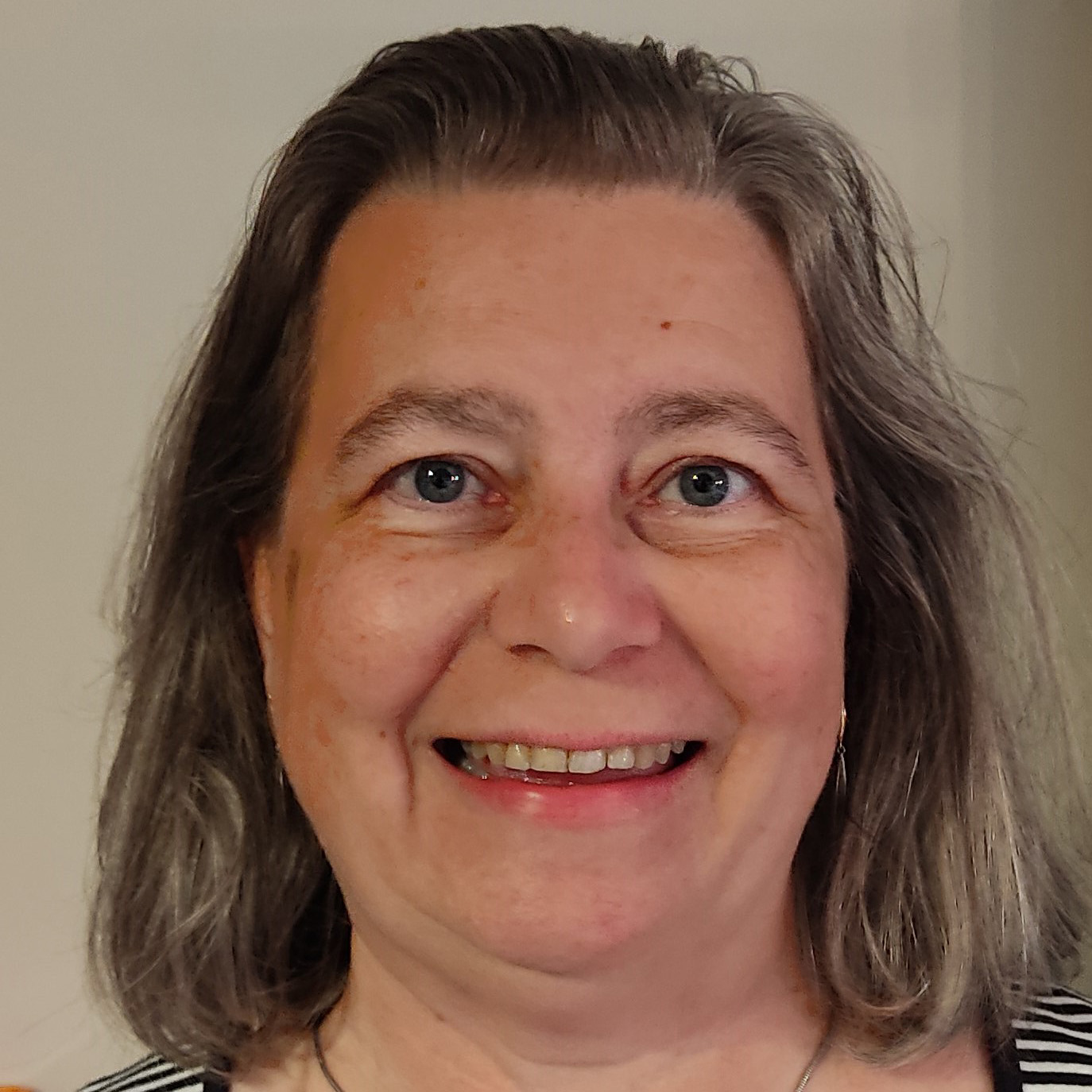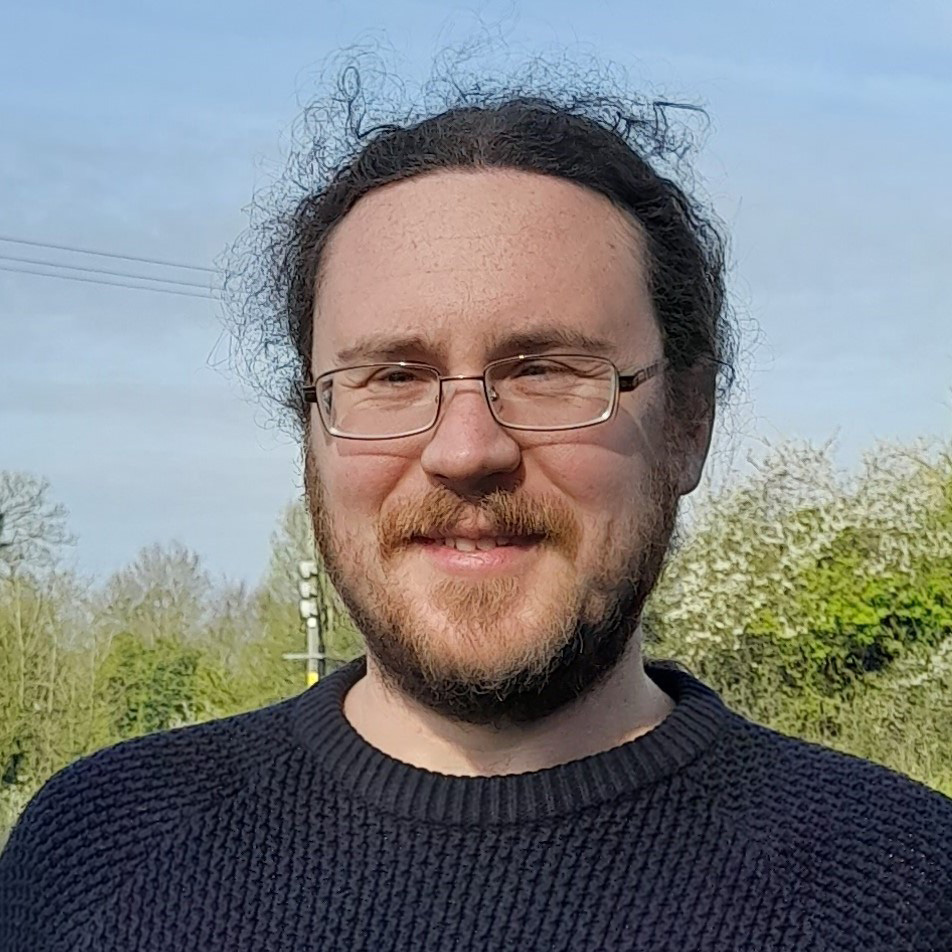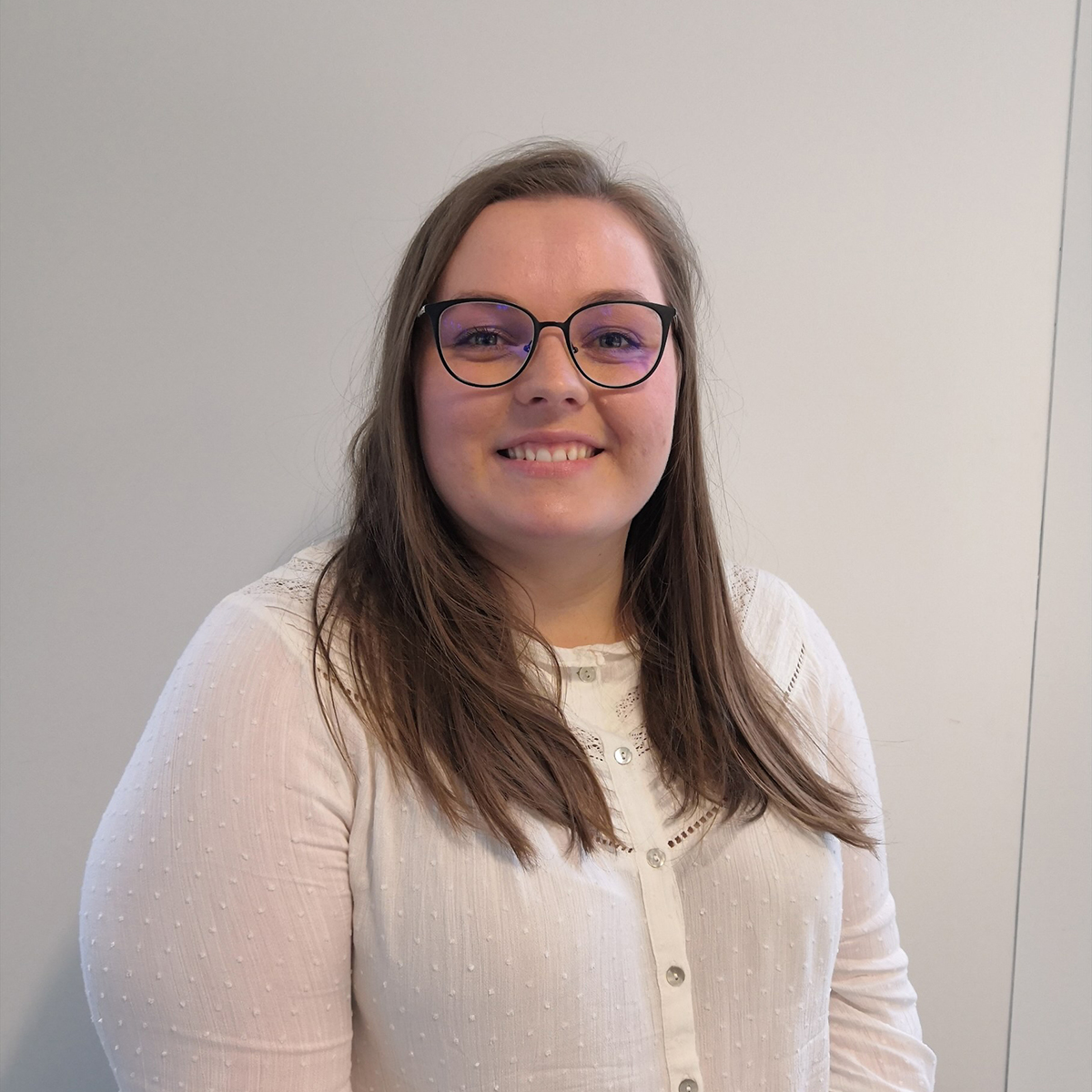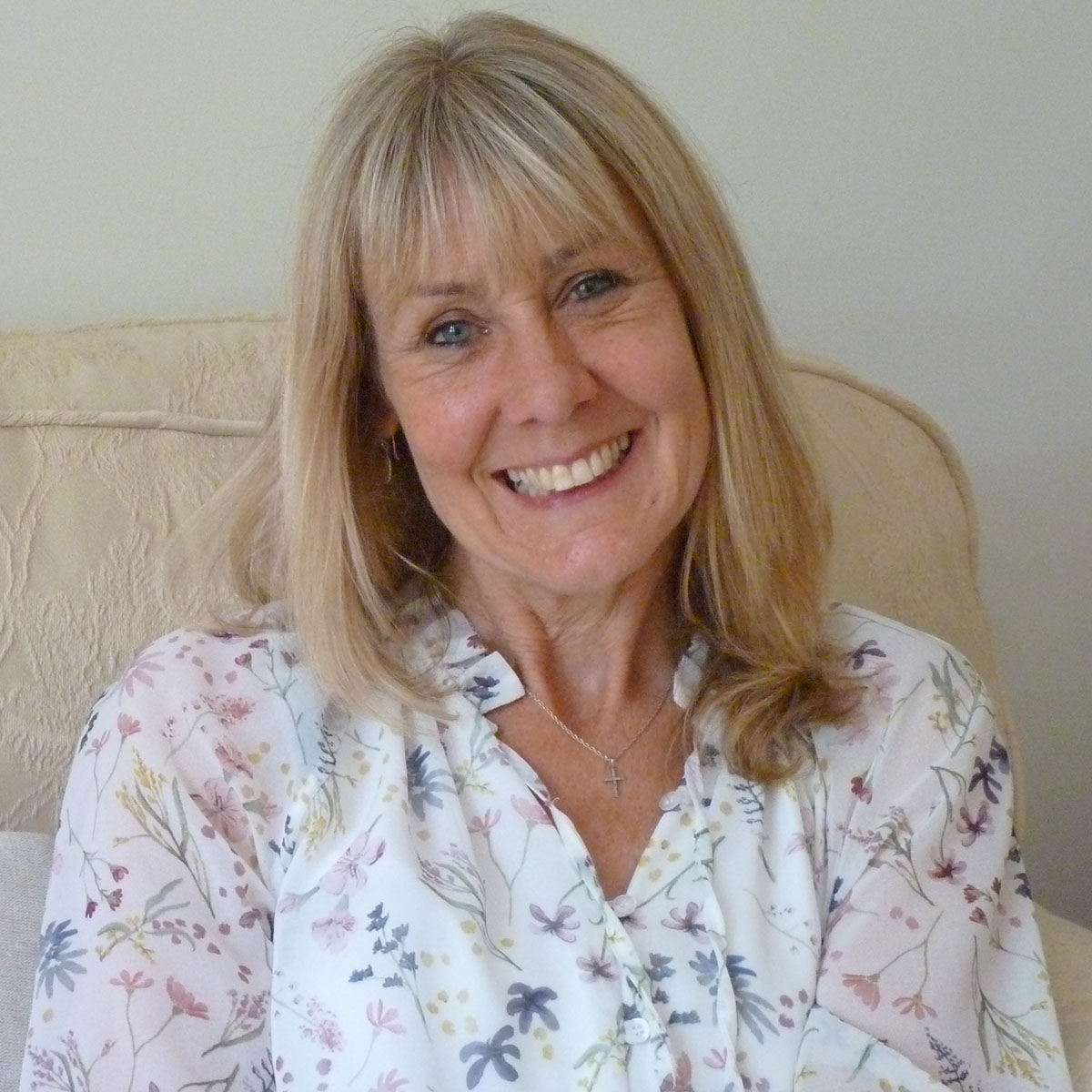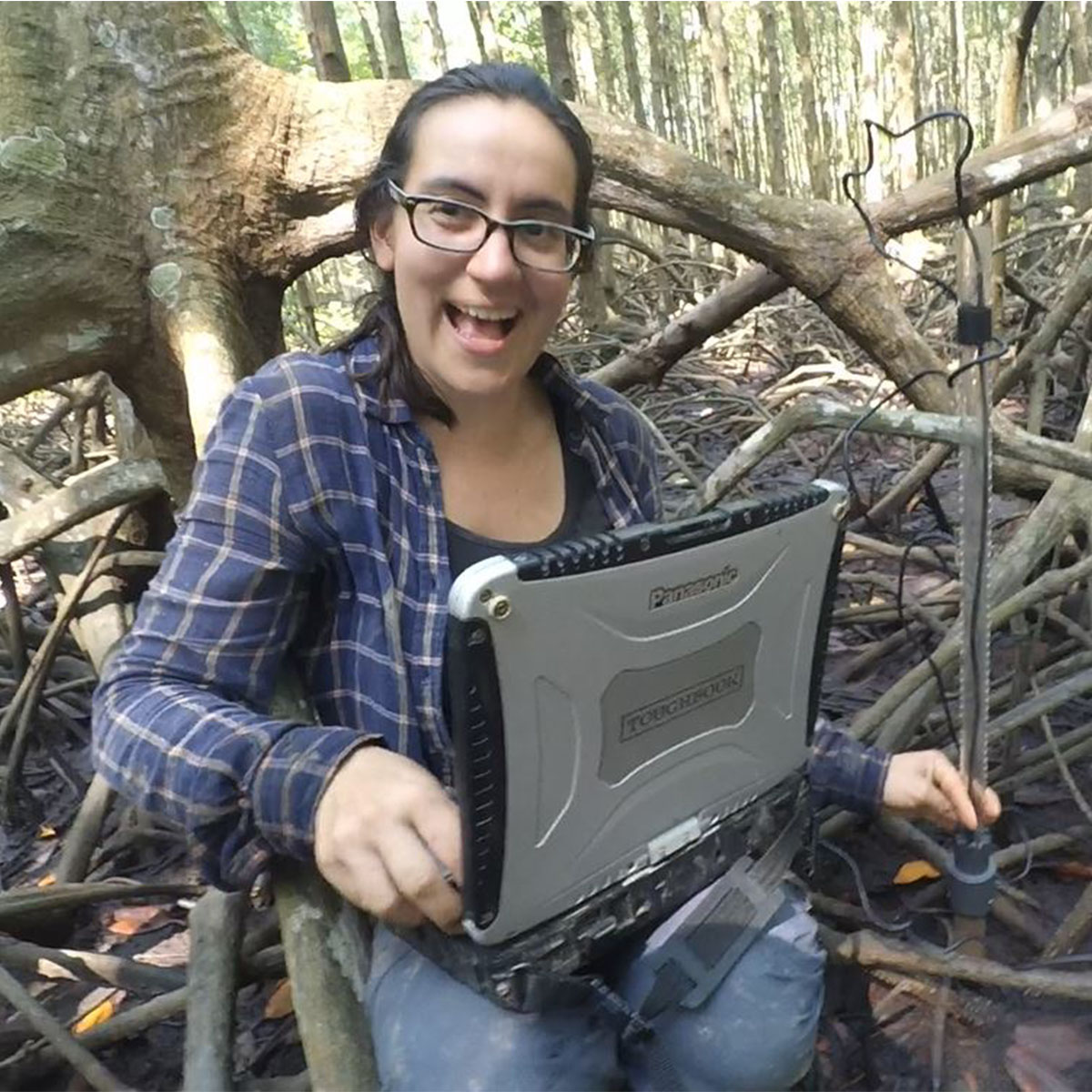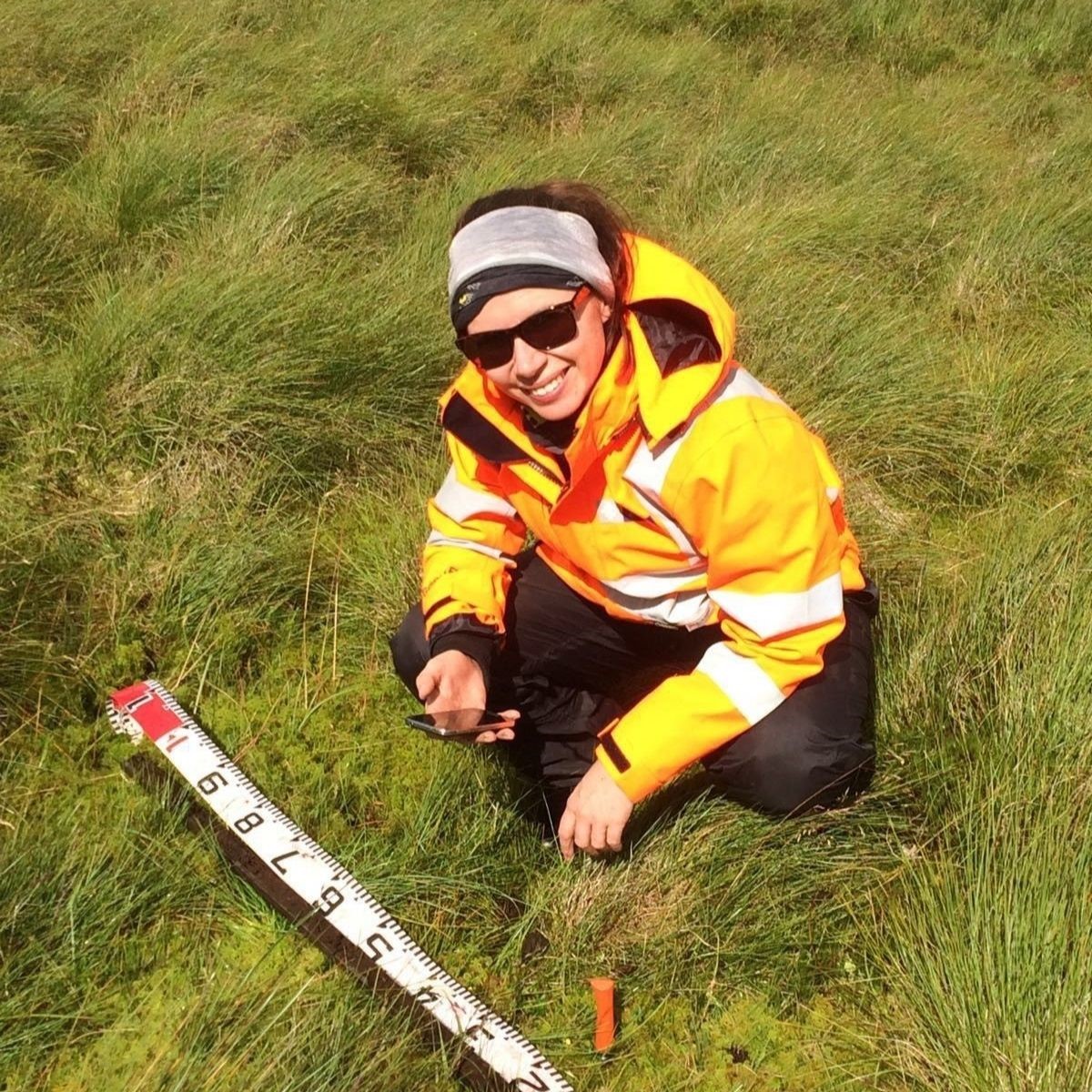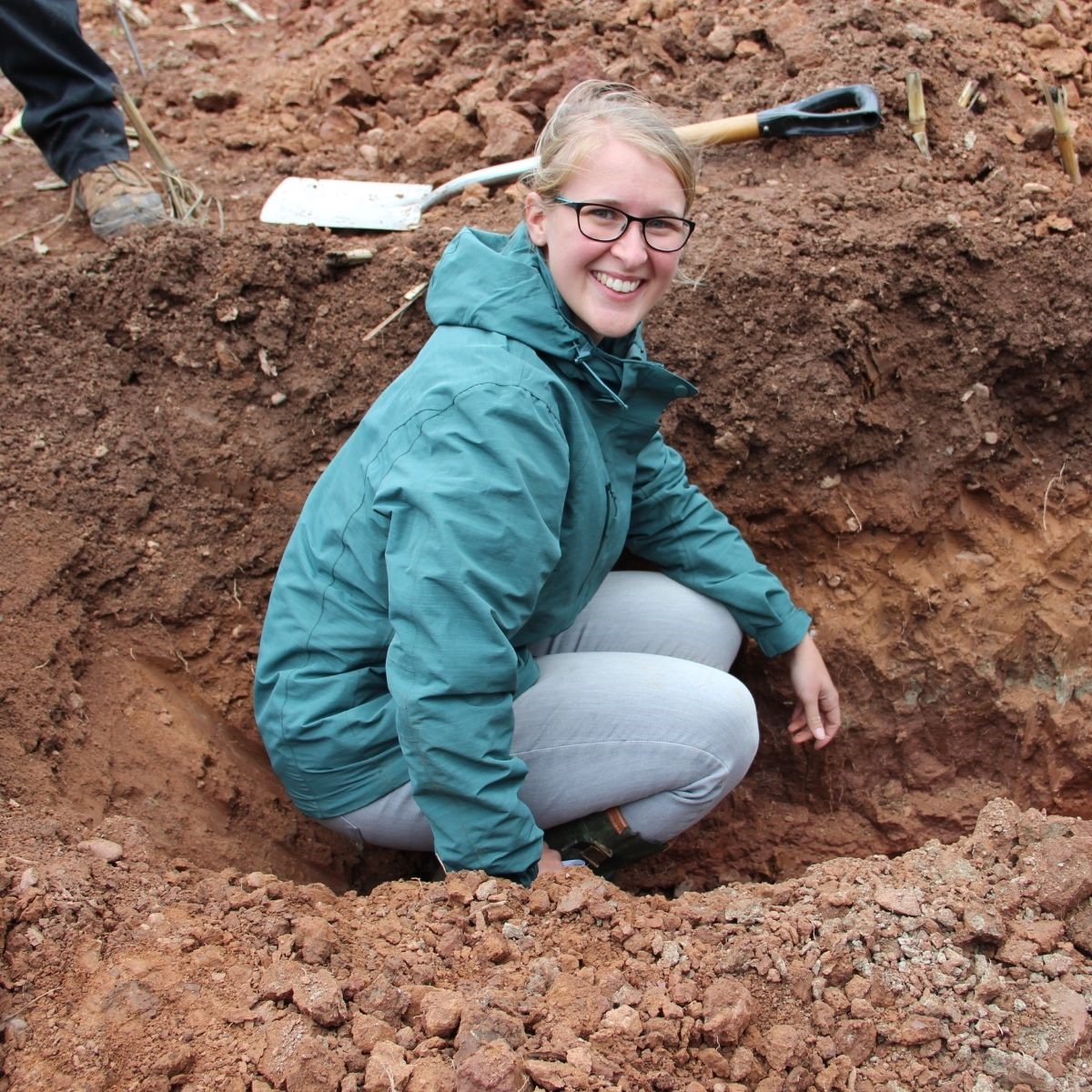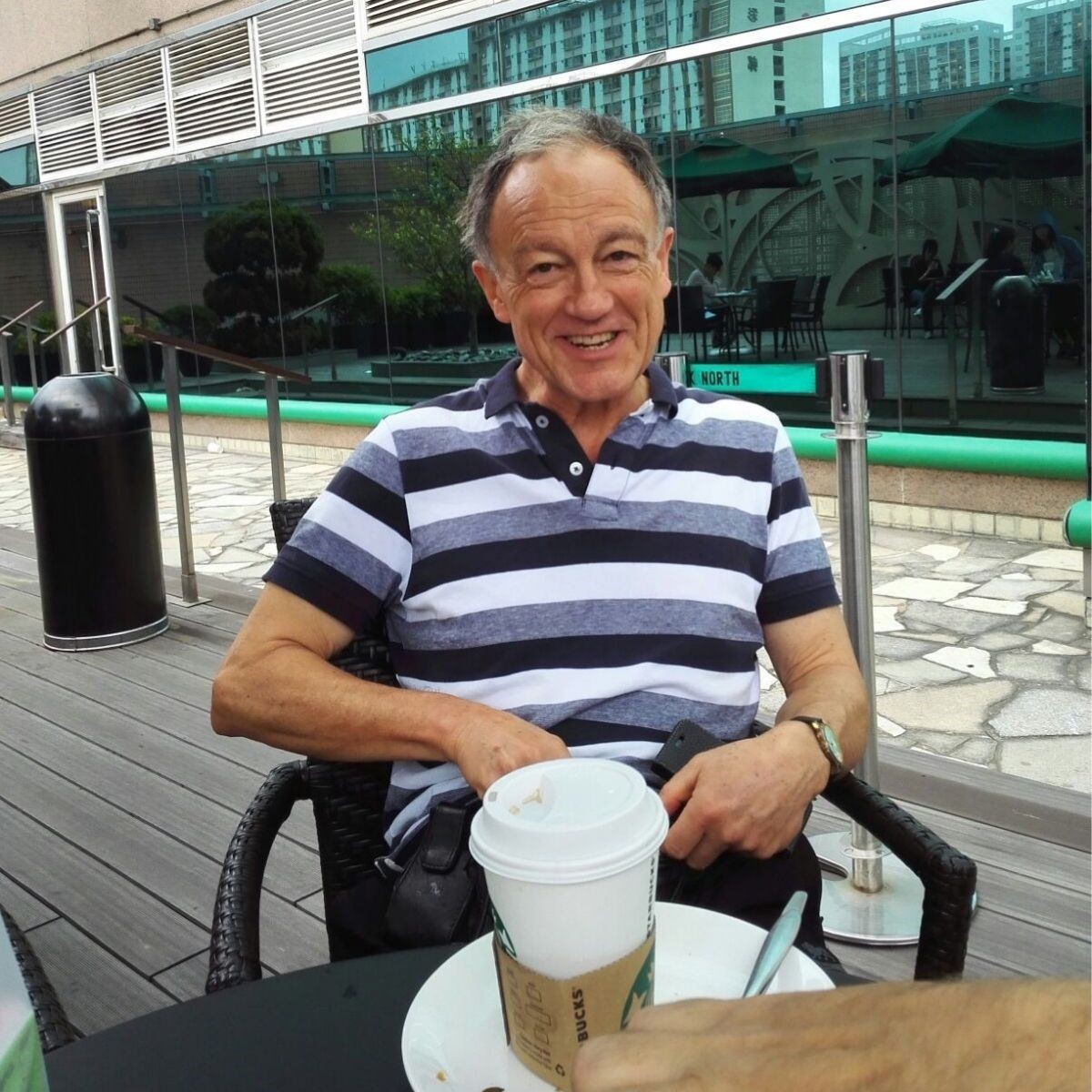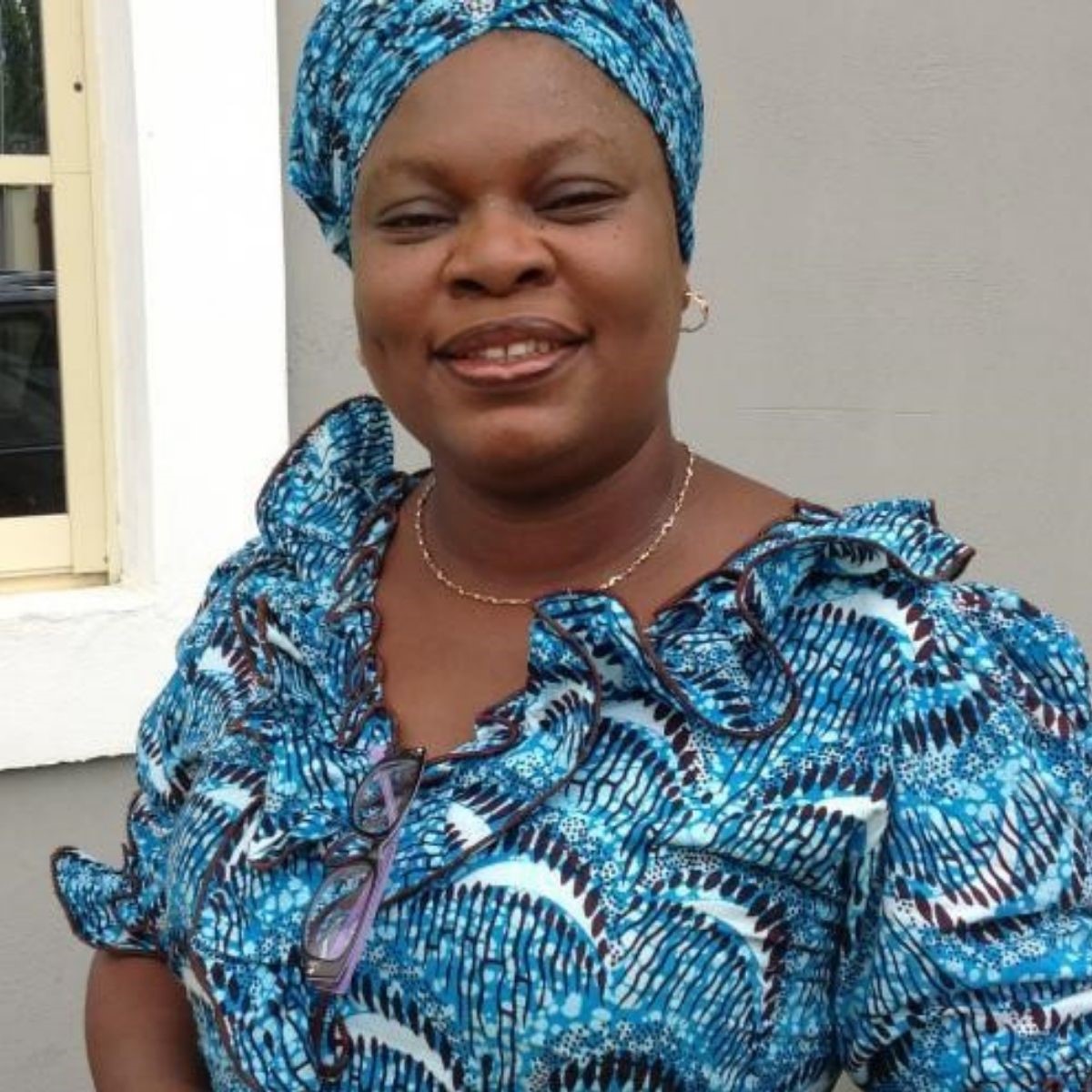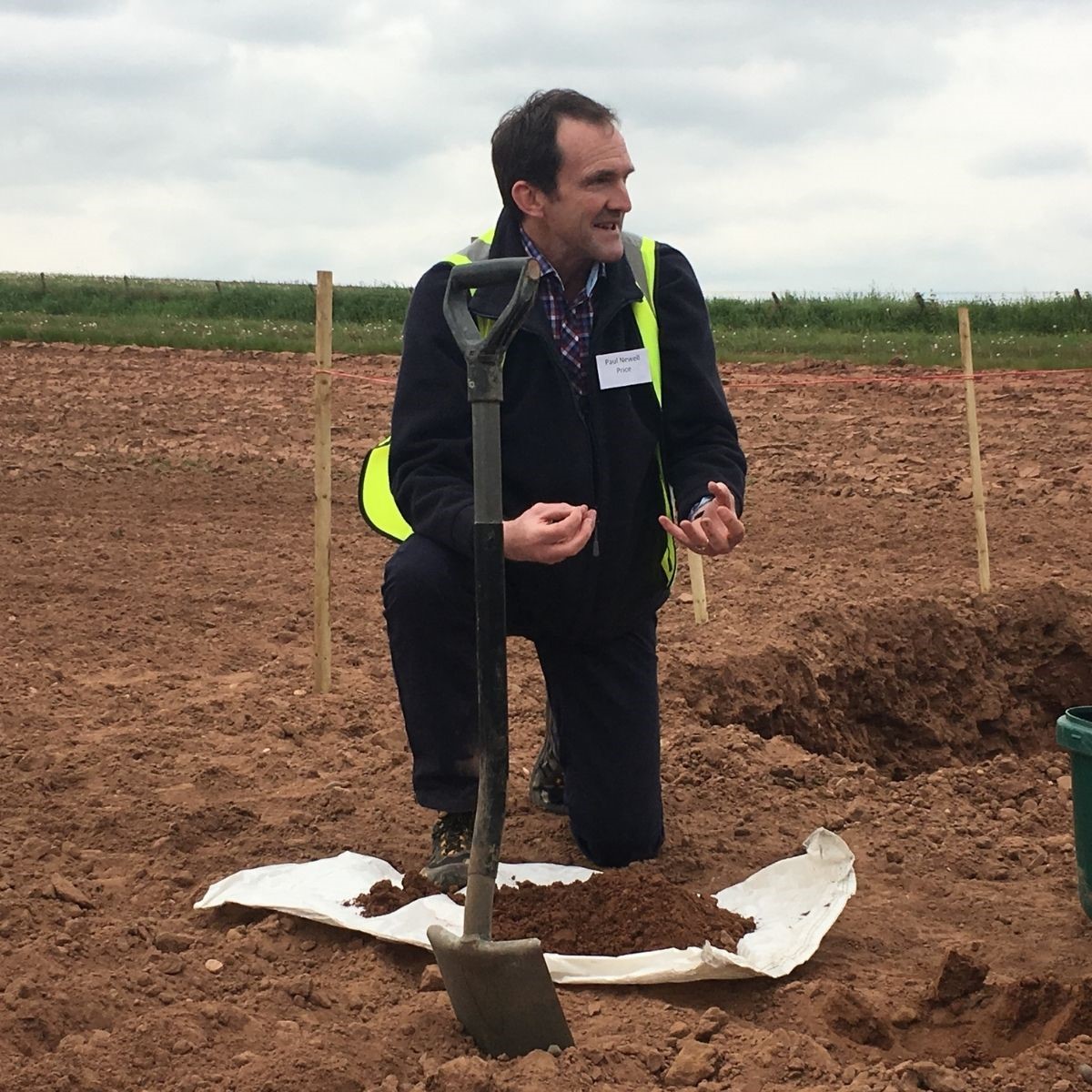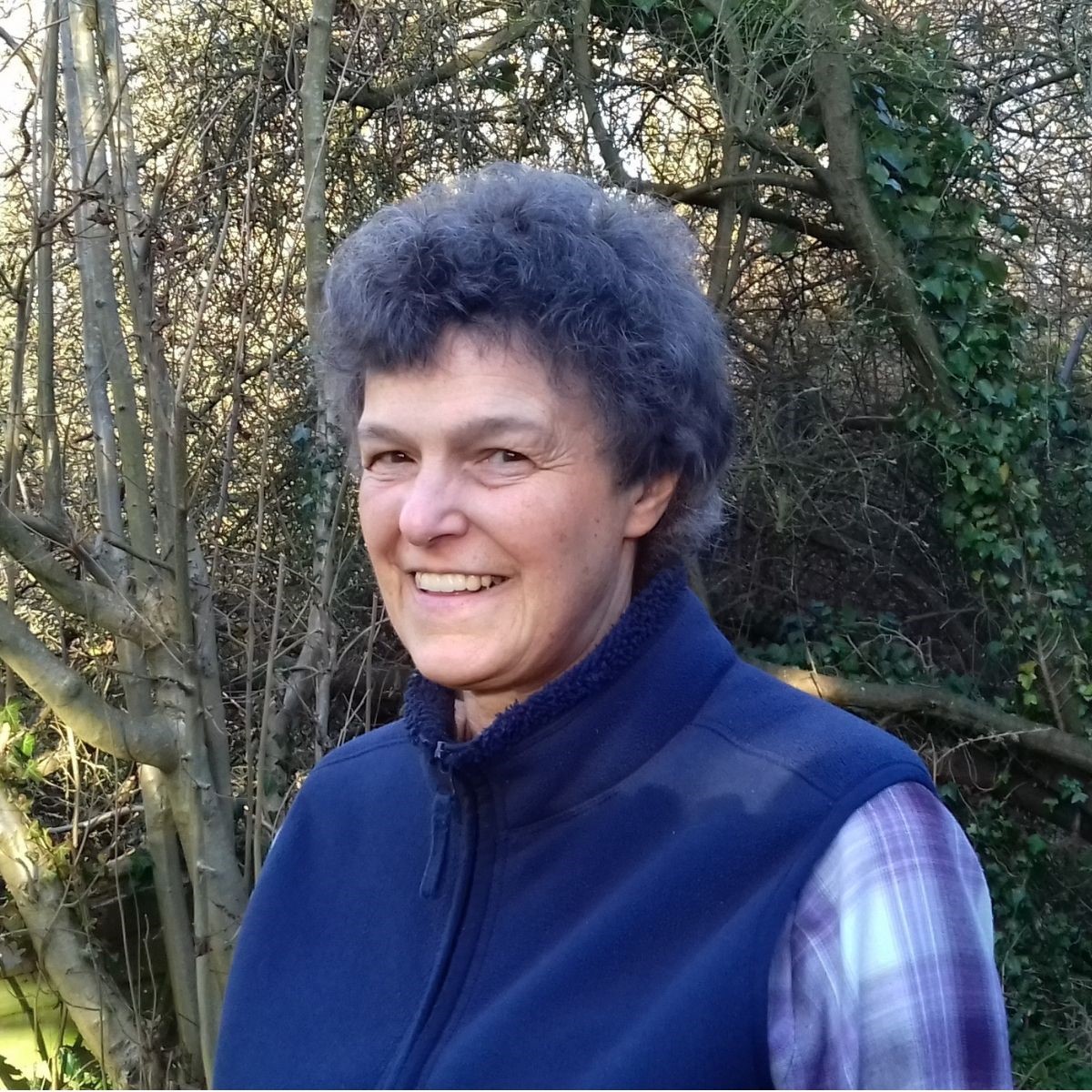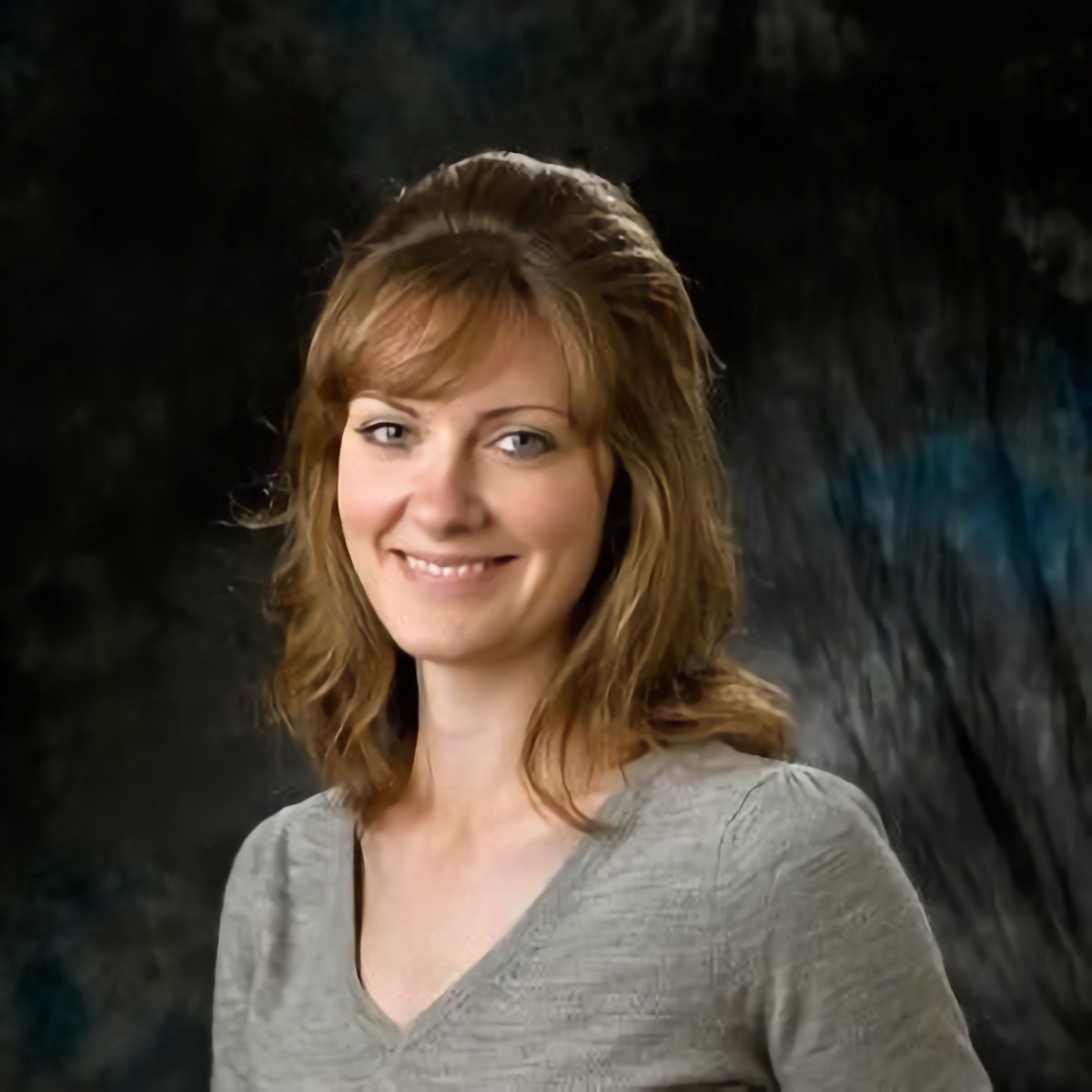Which organisation do you work for?
University of Plymouth
A day in the life of…
I’m not sure any day is the same. I might be working from home analysing data or report writing; in the office discussing next steps with co-workers or in the field sampling and testing equipment; visiting demonstration sites with project partners or in the lab measuring soil characteristics.
How does your job fit within Soil Science?
I can often be found in the lab testing soil samples, but I also feel like I’m at the cutting edge of soil science for the masses by working on a project to make soil health analysis a more rapid process for the construction and farming industries.
Why is this an interesting area to work in?
The variety of work is amazing. I love being outdoors so the chance to be out in the beautiful countryside of Devon and Cornwall and getting paid for it is a bonus! Then there is the partnership working, where I’m learning new skills and making new contacts, the return to a lab environment to determine physical characteristics of our sampled soil and the excitement of future plans and where the project is heading.
Why Soil Science?
Redundancy after a career in environmental training and regeneration projects required a rethink in my career direction. An opportunity arose for lab work to prepare soil samples for analysis. Sieving soil paid the bills for a few weeks before my role developed into my processing the samples. I soon found myself designing and delivering sediment fingerprinting fieldwork campaigns and undertaking the subsequent soil analysis. I had found a new interest in travelling around the UK, collecting samples, meeting landowners and clients and undertaking lab-based analysis.
What did you study?
Back in the ’90s, I studied BSc Environmental Science. Roll forward a few decades and my PhD was not soil, but cheese related! I studied the impact of treated dairy waste on the water chemistry and biology of upland river receiving waters.
What has your career path been so far?/ How did you begin your career?
During and after my degree, I was passionate about practical conservation management. I led working holidays hedgelaying and clearing footpaths, became a countryside ranger then instructed unemployed young people on employment schemes, giving them a sense of self worth and value – not to mention getting up and working hard! Promotion led to environmental regeneration project management before redundancy hit me. After my PhD, I was in the right place at the right time – a vacancy needed filling urgently and I was available for an immediate start and a return to being a Soil Scientist.
What is the best thing about your job?
Being able to get outside – whether it’s a lunchtime run when working from home, my cycle to the office or being out in the field. Watching the changing seasons is a passion for me and such a boost to mental wellbeing.
What skills, abilities and personal attributes are essential to success in your job/this field?
Adaptability is crucial. Weather and commitments of stakeholders can change rapidly, and you need to be able to change plans at the last minute. Being friendly and respectful to those you work with is important. That manager / lecturer you don’t like or get on with may one day be your PhD supervisor!
What advice would you offer to young people interested in a career in soil science?
Being on the BSSS EC Committee might be making me a touch bias here, but I cannot recommend membership of the Society enough – nor actively volunteering for the Society – whether it‘s helping with your regional BSSS group or helping to organise an Early Careers Conference, the skills you develop are incredible and you also immerse yourself with likeminded people with similar interests.
Can you recommend other journals, magazines or professional associations which would be helpful for professional development?
Think about the area of work you want to be in and look at the industry related journals and societies. As a student, membership fees are affordable, and societies often offer travel and project grants.
If you could do it all over again, would you choose the same path for yourself?
I have really enjoyed my career pathway to date and have helped a lot of people along the way. My career certainly hasn’t made me rich and famous but the sense of worth it has given me has such value. If I was to have a second chance, I might consider reading for a Masters / PhD earlier – it’s a challenge when you have a young family!
Tell us one thing about yourself that not many people know
I use my allotment as a testing ground for soil science experiments!
Is there anything else that you would like to share relating to your work in soil science?
Soil science is an incredibly interesting field (excuse the pun!) of study and new opportunities are opening daily. Definitely an area for your career to head in!

